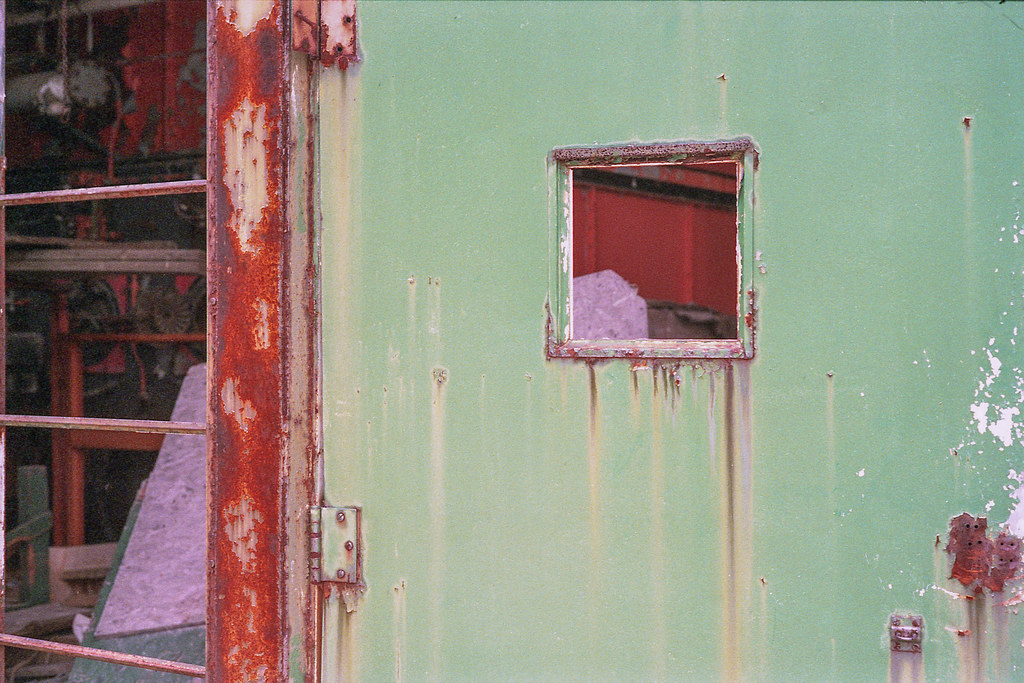
Rust window [Easton, PA]: photo by Andrew Murr, 19 September 2017
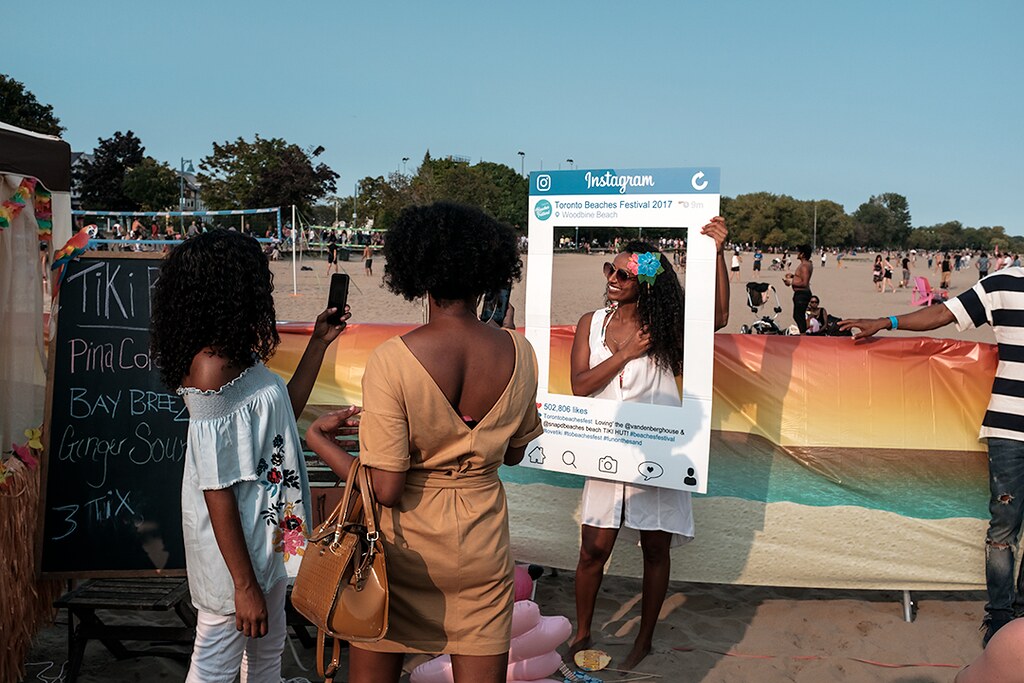
Untitled: photo by Dominic Bugatto 19 September 2017
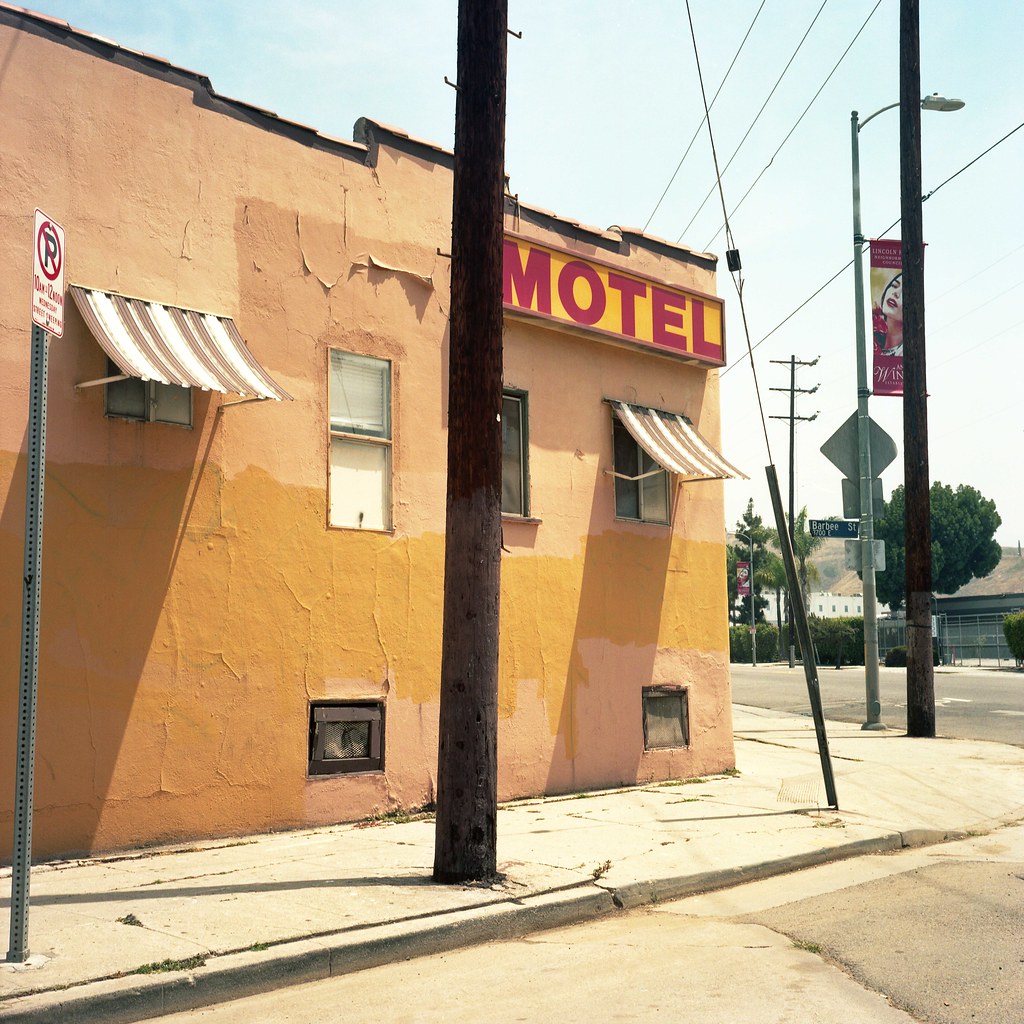
Motel [eastside, LA]: photo by Andrew Murr, 19 September 2017
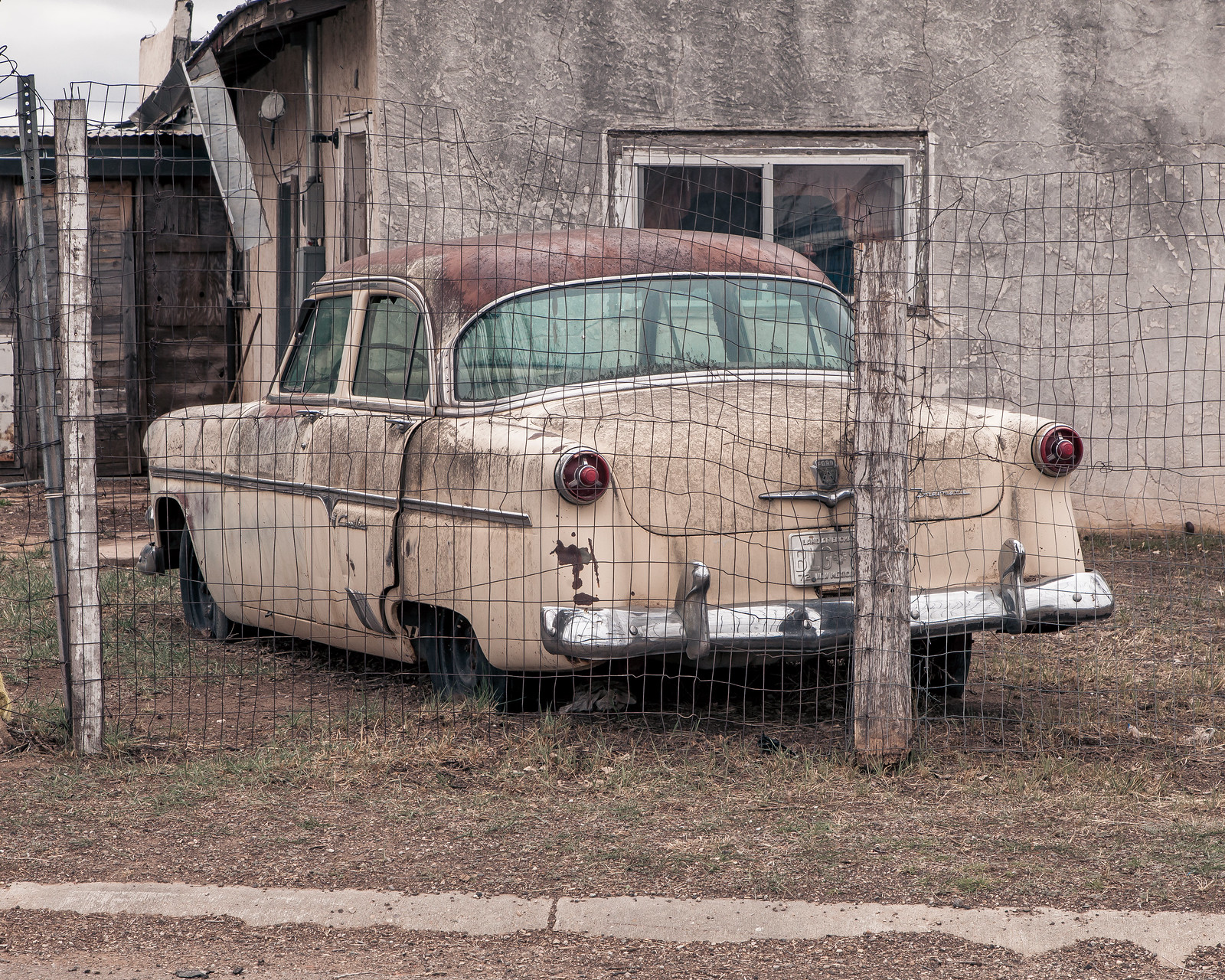
Roy, New Mexico: photo by Jorge Guadalupe Lizárraga, March 2016

Roy, New Mexico: photo by Jorge Guadalupe Lizárraga, March 2016

Roy, New Mexico: photo by Jorge Guadalupe Lizárraga, March 2016

Women are covered in dust after making it out of a building that collapsed after an earthquake in the Roma neighborhood of Mexico City, Tuesday, Sept. 19, 2017. A powerful earthquake jolted central Mexico on Tuesday, causing buildings to sway sickeningly in the capital on the anniversary of a 1985 quake that did major damage.: photo by Rebecca Blackwell/AP, 19 September 2017

A woman speaks on her cell phone as people evacuated from office building gather in Reforma Avenue after an earthquake in Mexico City, Tuesday Sept. 19, 2017. A powerful earthquake jolted central Mexico on Tuesday, causing buildings to sway sickeningly in the capital on the anniversary of a 1985 quake that did major damage.: photo by Rebecca Blackwell/AP, 19 September 2017
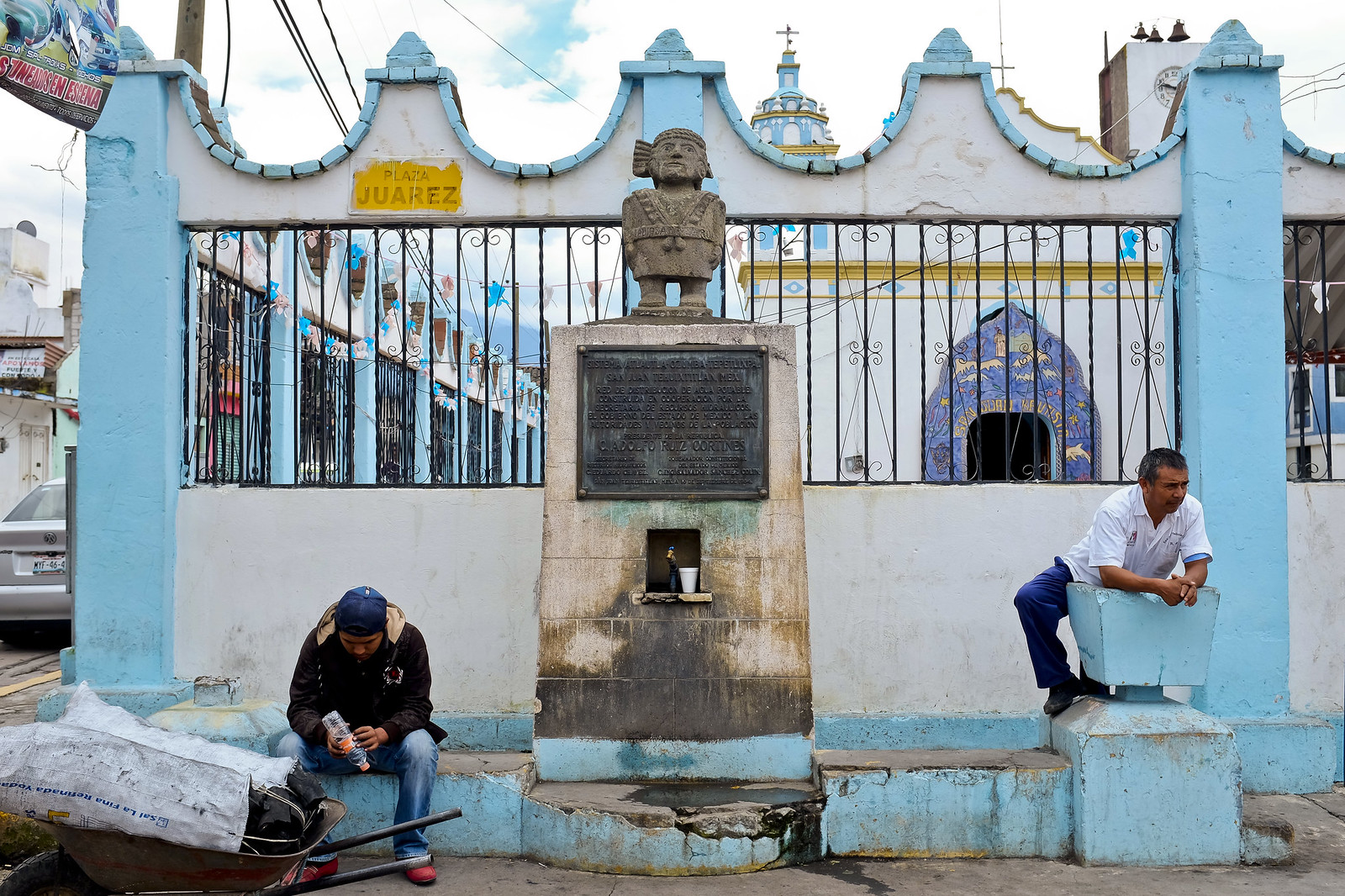
Chalchiuhtlicue, La Diosa del Agua... Atlautla, EDOMEX 2017...: photo by Fermin Guzman, 13 September 2017

Chalchiuhtlicue, La Diosa del Agua... Atlautla, EDOMEX 2017...: photo by Fermin Guzman, 13 September 2017

Chalchiuhtlicue, La Diosa del Agua... Atlautla, EDOMEX 2017...: photo by Fermin Guzman, 13 September 2017

A powerful earthquake jolted central Mexico on Tuesday, causing buildings to sway in the capital on the anniversary of a 1985 quake that did major damage.: photo by AP, 19 September 2017
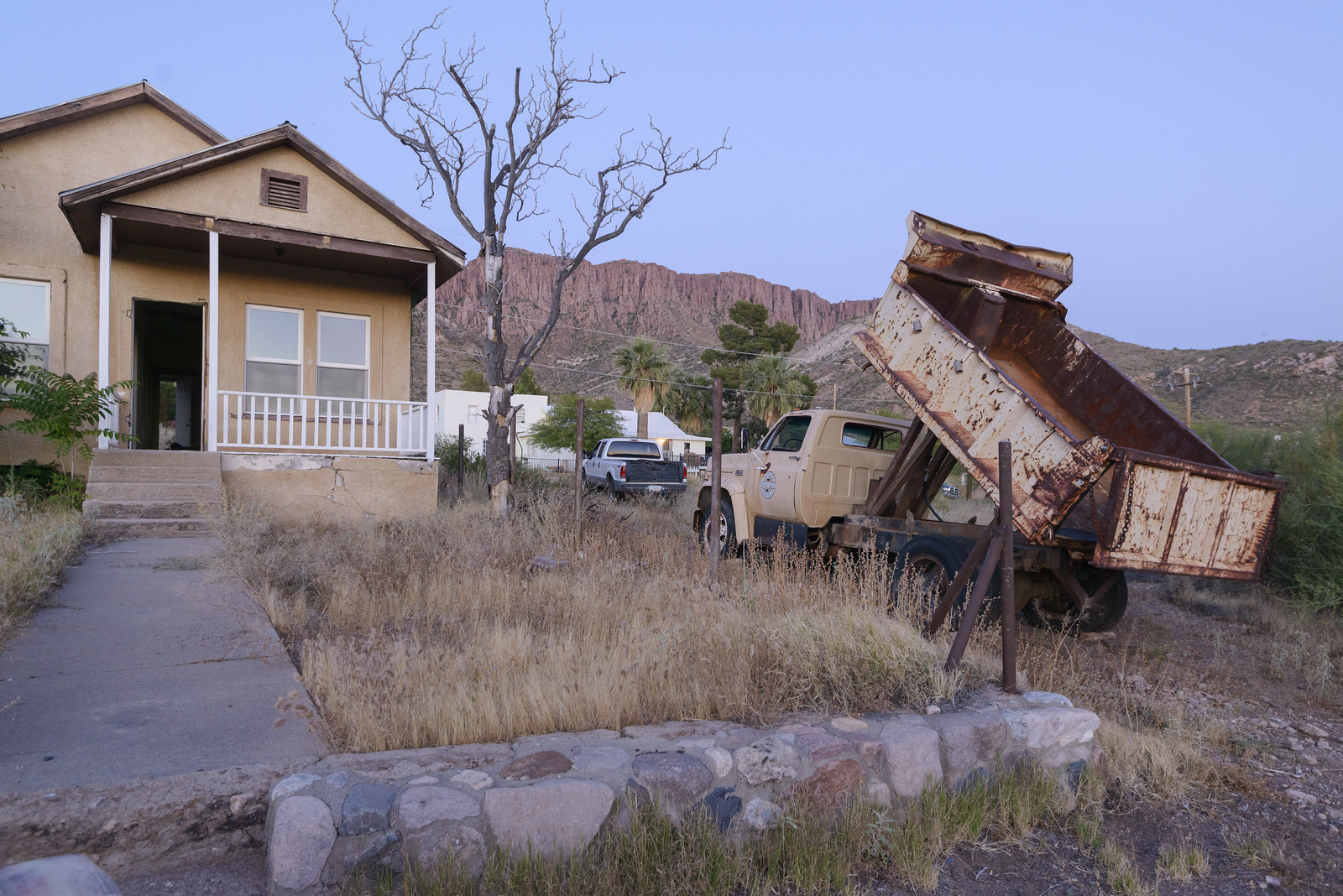
Superior, Arizona: photo by Dean Terasaki, 18 May 2017

Superior, Arizona: photo by Dean Terasaki, 18 May 2017

Superior, Arizona: photo by Dean Terasaki, 18 May 2017

The death toll in Mexico’s magnitude 7.1 quake continues to rise. At 6pm Eastern, it rose to 119, that’s the largest number of fatalities in a Mexican earthquake since the 1985 quake that killed thousands.: photo by AP, 19 September 2017
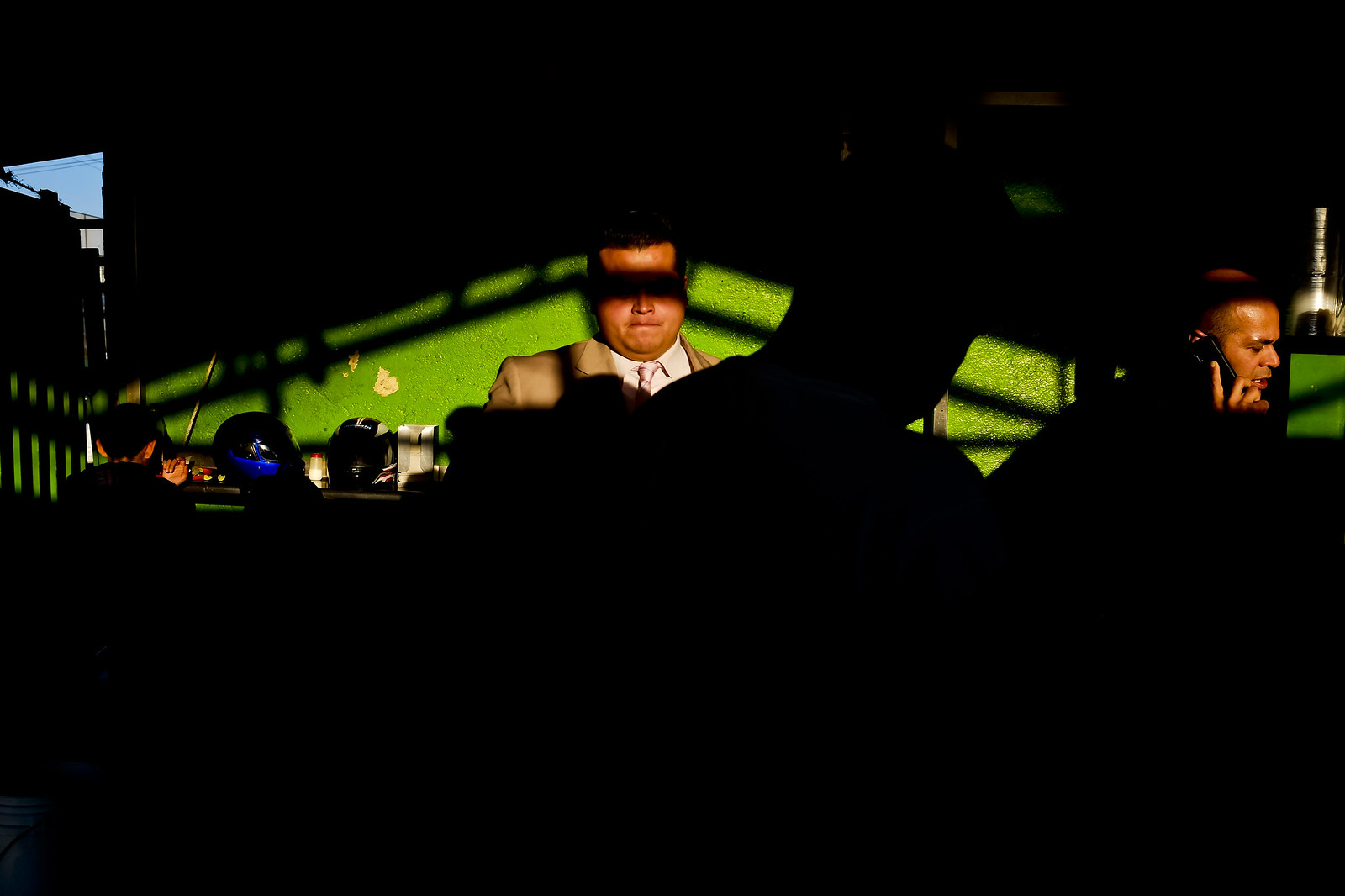
Ixtapaluca, EDOMEX 2017...: photo by Fermin Guzman, 12 September 2017

Ixtapaluca, EDOMEX 2017...: photo by Fermin Guzman, 12 September 2017

Ixtapaluca, EDOMEX 2017...: photo by Fermin Guzman, 12 September 2017

People evacuated from office buildings gather in Reforma Avenue after an earthquake in Mexico City, Tuesday Sept. 19, 2017. A powerful earthquake jolted central Mexico on Tuesday, causing buildings to sway sickeningly in the capital on the anniversary of a 1985 quake that did major damage.: photo by Rebecca Blackwell/AP, 19 September 2017

The body of a woman hangs crushed by a collapsed building in the neighborhood of Roma Norte, in Mexico City, Tuesday, Sept. 19, 2017. Throughout Mexico City, rescuer workers and residents dug through the rubble of collapsed buildings seeking survivors following a 7.1 magnitude quake.: photo by Marco Ugarte/AP, 19 September 2017

The body of woman hangs crushed by a collapsed building in the neighborhood of Roma Norte, in Mexico City, Tuesday, Sept. 19, 2017. Throughout Mexico City, rescuer workers and residents dug through the rubble of collapsed buildings seeking survivors following a 7.1 magnitude quake.: photo by Marco Ugarte/AP, 19 September 2017

People search for survivors in a collapsed building in the Roma neighborhood of Mexico City, Tuesday, Sept. 19, 2017. A powerful earthquake has jolted Mexico, causing buildings to sway sickeningly in the capital on the anniversary of a 1985 quake that did major damage.: photo by Enric Marti/AP, 19 September 2017

Remains of a damaged building stands after an earthquake in Mexico City, Tuesday, Sept. 19, 2017. A powerful earthquake has jolted Mexico, causing buildings to sway sickeningly in the capital on the anniversary of a 1985 quake that did major damage.: photo by Rebecca Blackwell/AP, 19 September 2017

A car sits crushed, engulfed in a pile of rubble from a building felled by a 7.1 earthquake, in Jojutla, Morelos state, Mexico, Tuesday, Sept. 19, 2017. The earthquake stunned central Mexico, killing at least 139 people as buildings collapsed in plumes of dust.: photo by Carlos Rodriguez/AP, 19 September 2017

A man walks out of the door frame of a building that collapsed after an earthquake, in the Condesa neighborhood of Mexico City, Tuesday, Sept. 19, 2017. Throughout Mexico City, rescuer workers and residents dug through the rubble of collapsed buildings seeking survivors following a 7.1 magnitude quake.: photo by Marco Ugarte/AP, 19 September 2017

A construction worker searches a building that collapsed after an earthquake, in the Roma neighborhood of Mexico City, Tuesday, Sept. 19, 2017. A magnitude 7.1 earthquake has rocked central Mexico, killing at least 55 people as buildings collapsed in plumes of dust and thousands fled into the streets in panic.: photo by Eduardo Verdugo/AP, 19 September 2017

Soldiers walk past piles of rubble from buildings felled by a 7.1 earthquake, in Jojutla, Morelos state, Mexico, Tuesday, Sept. 19, 2017. The earthquake stunned central Mexico, killing at least 139 people as buildings collapsed in plumes of dust.: photo by Carlos Rodriguez/AP, 19 September 2017
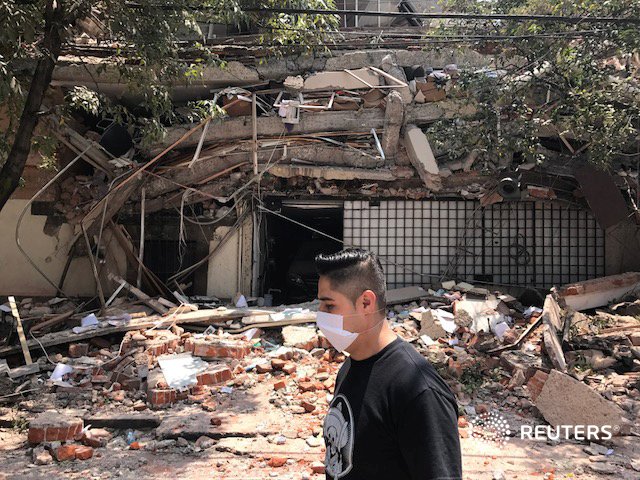
Death toll rising after 7.1 magnitude earthquake strikes central Mexico: image via Reuters Pictures @reuterspictures, 19 September 2017
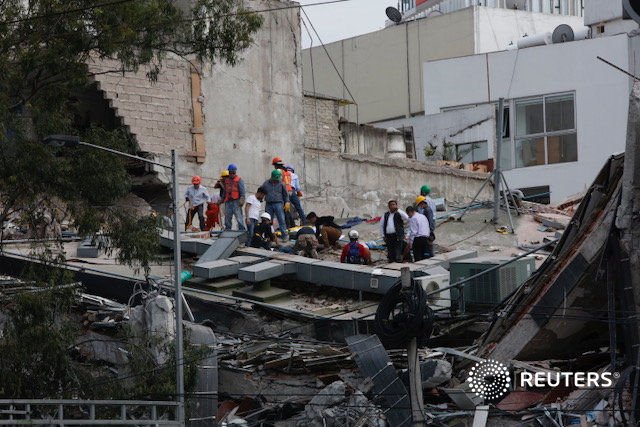
Death toll rising after 7.1 magnitude earthquake strikes central Mexico: image via Reuters Pictures @reuterspictures, 19 September 2017
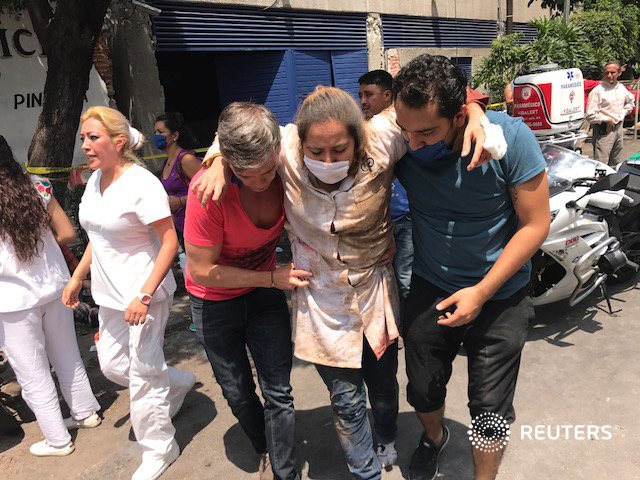
Death toll rising after 7.1 magnitude earthquake strikes central Mexico: image via Reuters Pictures @reuterspictures, 19 September 2017
Major earthquake hits near Mexico City, dozens dead: Anthony Esposito, Reuters, 19 September 2017
MEXICO
CITY (Reuters) - A major earthquake of magnitude 7.1 struck central
Mexico on Tuesday, toppling dozens of buildings in the heavily populated
capital and killing at least 49 people nearby.
President Enrique Pena said 27 buildings had collapsed in Mexico City, one of the world’s biggest cities. The first reports of fatalities were from surrounding areas.
In the state of Morelos, just south of Mexico City, 42 people died, the state’s governor said. Authorities reported other deaths in neighboring Puebla and the State of Mexico.
“People are really scared right now,” said dentist Claudia Meneses who was in her clinic in Mexico City’s Lindavista neighborhood when the earthquake struck mid-afternoon. “We’re going to go to a building that fell to see if we can help.”
Earthquakes of magnitude 7 or above are regarded as major and are capable of causing widespread heavy damage.
Television images showed a multi-story building in the capital with a middle floor collapsed as sirens blared and first responders rushed to the scene. Other video showed the side of a government building shearing off and falling into the street as bystanders screamed.
Rescue workers pulled at least one survivor from a collapsed building in the Condesa neighborhood near the center of Mexico City.
U.S. President Donald Trump said on Twitter: “God bless the people of Mexico City. We are with you and will be there for you.” The city and its surrounding area are home to about 20 million people.
In Cuernavaca, a city south of Mexico City, there were unconfirmed reports on local radio of people trapped beneath collapsed buildings.
President Enrique Pena said 27 buildings had collapsed in Mexico City, one of the world’s biggest cities. The first reports of fatalities were from surrounding areas.
In the state of Morelos, just south of Mexico City, 42 people died, the state’s governor said. Authorities reported other deaths in neighboring Puebla and the State of Mexico.
“People are really scared right now,” said dentist Claudia Meneses who was in her clinic in Mexico City’s Lindavista neighborhood when the earthquake struck mid-afternoon. “We’re going to go to a building that fell to see if we can help.”
Earthquakes of magnitude 7 or above are regarded as major and are capable of causing widespread heavy damage.
Television images showed a multi-story building in the capital with a middle floor collapsed as sirens blared and first responders rushed to the scene. Other video showed the side of a government building shearing off and falling into the street as bystanders screamed.
Rescue workers pulled at least one survivor from a collapsed building in the Condesa neighborhood near the center of Mexico City.
U.S. President Donald Trump said on Twitter: “God bless the people of Mexico City. We are with you and will be there for you.” The city and its surrounding area are home to about 20 million people.
In Cuernavaca, a city south of Mexico City, there were unconfirmed reports on local radio of people trapped beneath collapsed buildings.
Mexican TV and social media showed cars crushed by debris. Many people fled into the streets, and electricity and phone lines were down in parts of the capital.
“We got out really fast, leaving everything as it was and just left,” said Rosaura Suarez, as she stood with a crowd on the street.
The quake hit only hours after many people participated in earthquake drills around the nation on the anniversary of a devastating quake that killed thousands in Mexico City in 1985.
Many people were also still shaken from another quake on Sept. 7 in southern Mexico that killed at least 98 people.
The epicenter of Tuesday’s quake was located in the central state of Puebla, the U.S. Geological Survey said.
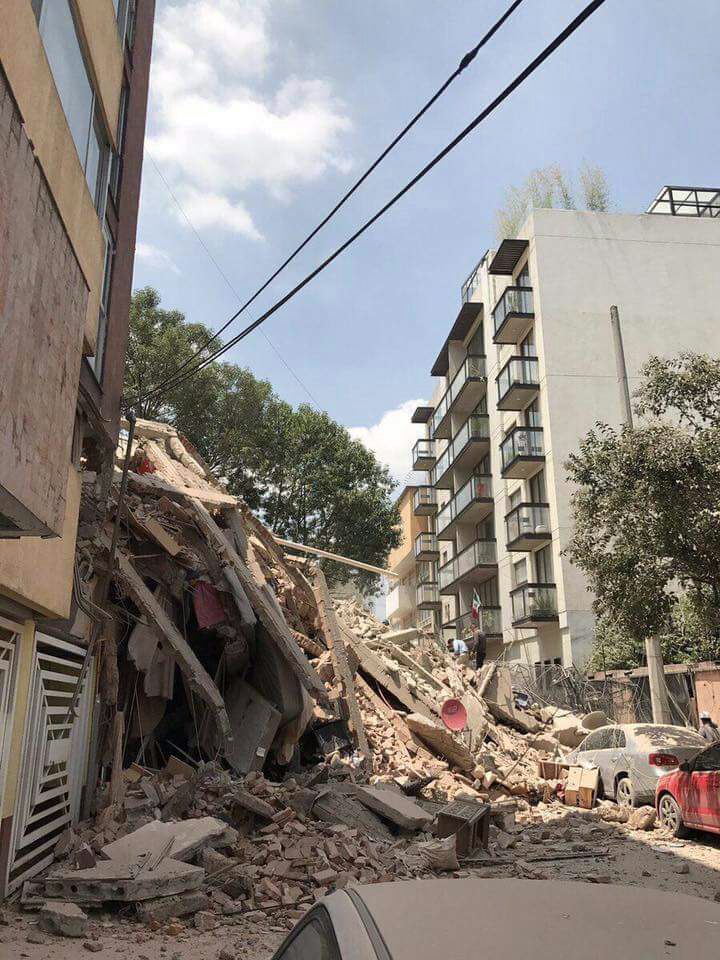
Oramos por #Mexico en estos momentos difíciles!!! Dios os de paz hermanos.: image via Eli Monteza Naval @EliMontezaN, 19 September 2017
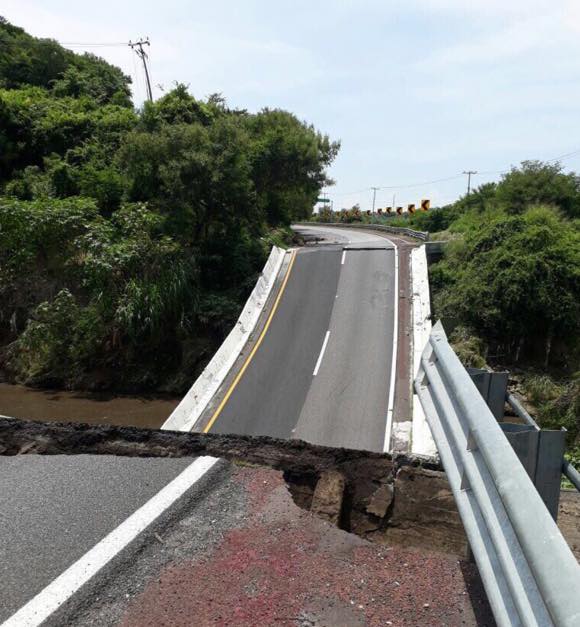
BREAKING: Deadly #earthquake magnitude 7.1 in the #Puebla region, #Mexico - at least 73 killed.: image via Marco (WCN News) @meteroogico777, 19 September 2017
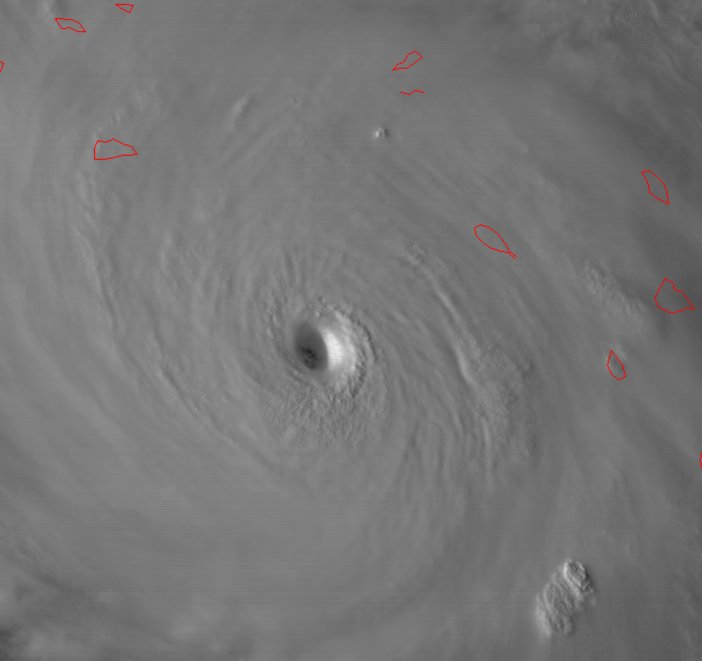
Disaster scenario: Cat 5 Hurricane Maria strengthening on approach to Puerto Rico, Virgin Islands.: image via Capital Weather Gang @capitalweather, 19 September 2017

Map of the 2017 hurricane season to date. h/t @StormForce_1 for the cumulative wind swath idea.: image via Ian Livingston @islivington , 19 September 2017
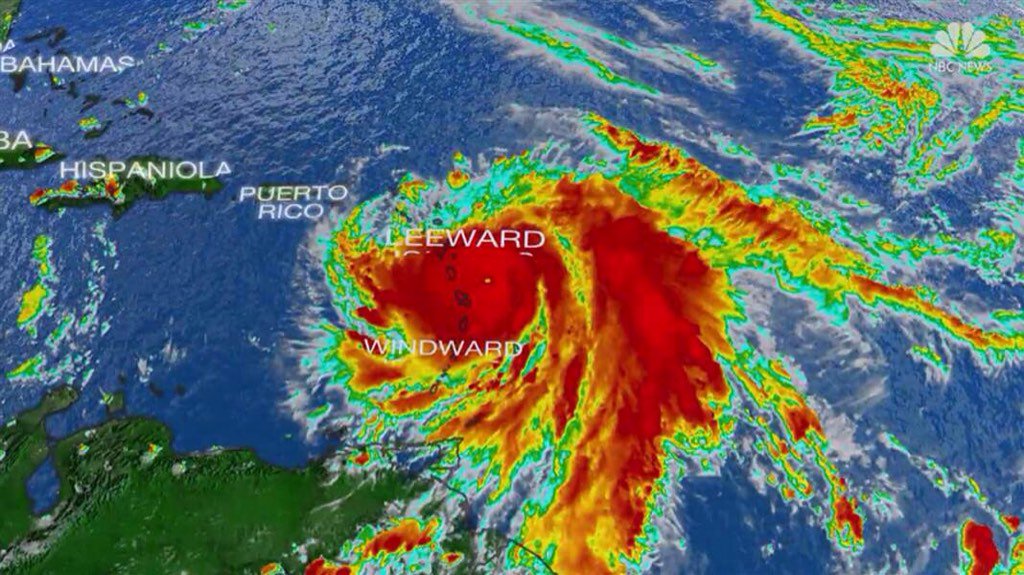
In 24hrs #Maria went from Cat 1 to Cat 5 due to superheated oceans. But go ahead, let's keep ignoring climate change.: image via Enviro Voter Project @Envitro_Voter, 19 September 2017
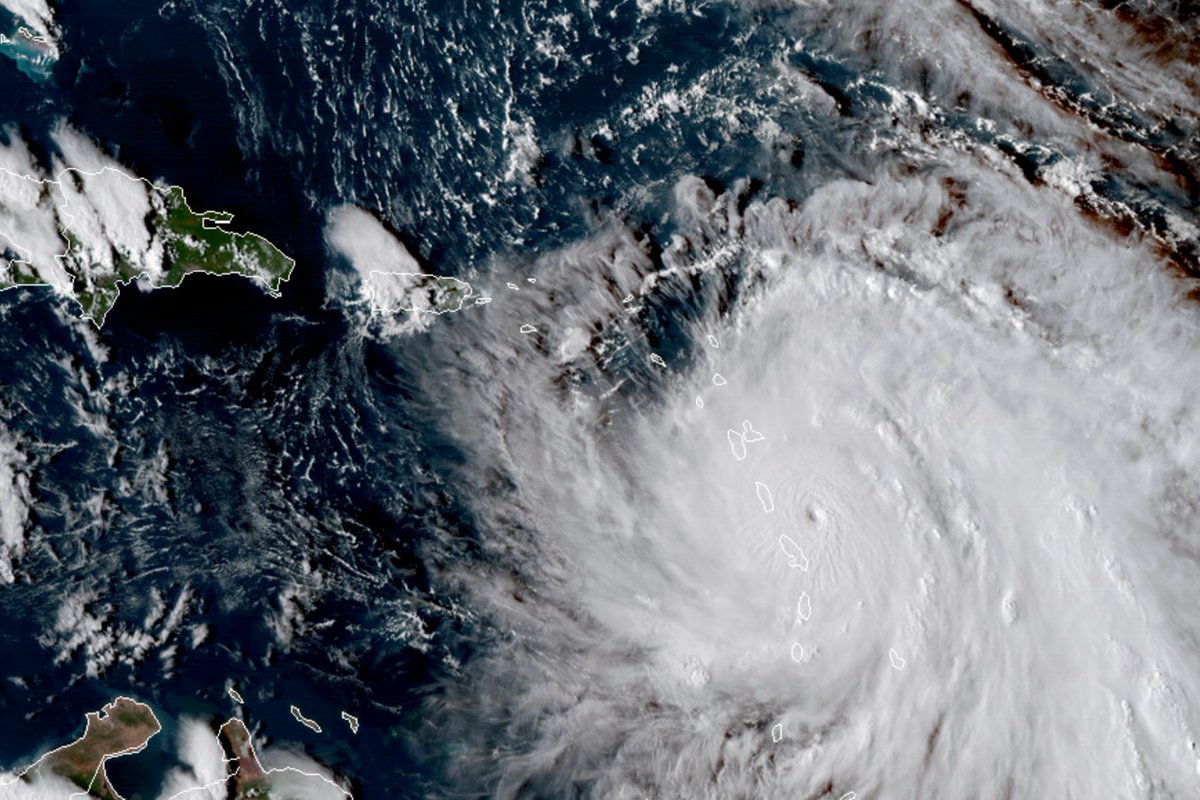
"Mind-boggling damage" reported in #Dominica from Cat. 5 Hurricane #Maria's landfall last night :-: image via Philip Klotzbach @philklotzbach, 19 September 2017

Aung San Suu Kyi, a Much-Changed Icon, Evades Rohingya Accusations

Daw Aung San Suu Kyi, Myanmar’s de facto leader, arriving to deliver a speech in Naypyidaw on Tuesday addressing the plight of the country’s Rohingya ethnic minority.: photo by Soe Zeya Tun/Reuters, 18 September 2017
NAYPYIDAW, Myanmar — Daw Aung San Suu Kyi, the Nobel Prize laureate
and de facto leader of Myanmar, stood before a room of government
officials and foreign dignitaries on Tuesday to at last, after weeks of
international urging, address the plight of the country’s Rohingya
ethnic minority.
But those who expected her to eloquently acknowledge a people’s oppression were disappointed.
In
her speech, delivered in crisp English and often directly inviting
foreign listeners to “join us” in addressing Myanmar’s problems, she
steadfastly refused to criticize the country’s military, which has been
accused of a vast campaign of killing, rape and village burning.
“The
security forces have been instructed to adhere strictly to the code of
conduct in carrying out security operations, to exercise all due
restraint and to take full measures to avoid collateral damage and the
harming of innocent civilians,” she said.
It
has been a stunning reversal for Ms. Aung San Suu Kyi, 72, who was
awarded the 1991 Nobel Peace Prize for her “nonviolent struggle for
democracy and human rights.”
As
she spoke, more than 400,000 Rohingya, a Muslim minority long repressed
by the Buddhists who dominate Myanmar, had fled a military massacre
that the United Nations has called a “textbook example of ethnic
cleansing.” The lucky ones are suffering in makeshift camps in
Bangladesh where there is not nearly enough food or medical aid.
A
stark satellite analysis by Human Rights Watch shows that at least 210
Rohingya villages have been burned to the ground since the offensive
began on Aug. 25. Bangladeshi officials say land mines had been planted
on Myanmar's side of the border, posing a threat to the fleeing
Rohingya.
Ms. Aung San Suu Kyi tried to mollify her critics by saying she was committed to restoring peace and the rule of law.

Supporters of Ms. Aung San Suu Kyi in Yangon, Myanmar’s largest city, on Tesday: photo by Lynn Bo Bo/European Pressphoto Agency, 18 September 2017

Supporters of Ms. Aung San Suu Kyi in Yangon, Myanmar’s largest city, on Tuesday: photo by Lynn Bo Bo/European Pressphoto Agency, 18 September 2017
“We
condemn all human rights violations and unlawful violence,” she said.
“We feel deeply for the suffering of all the people caught up in the
conflict.”
But,
asking why the world did not acknowledge the progress made in her
country, she also boasted that Muslims living in the violence-torn area
had ample access to health care and radio broadcasts. And she expressed
uncertainty about why Muslims might be fleeing the country, even as she
sidestepped evidence of widespread abuses by the security forces by
saying there had been “allegations and counter-allegations.”
Her
speech was remarkably similar in language to that of the generals who
had locked her up for the better part of two decades, in the process
making her a political legend: the regal prisoner of conscience who
vanquished the military with no weapons but her principles.
Ms.
Aung San Suu Kyi is the daughter of the assassinated independence hero
Aung San, who founded the modern Burmese Army. She is a member of the
country’s elite, from the highest class of the ethnic Bamar Buddhist
majority.
Officials in her government have accused the Rohingya, who have suffered decades of persecution and have been mostly stripped of their citizenship, of faking rape and burning their own houses in a bid to hijack international public opinion. She has done nothing to correct the record.
A
Facebook page associated with her office suggested that international
aid groups were colluding with Rohingya militants, whose attack on
Myanmar police posts and an army base precipitated the fierce military
counteroffensive. In a statement, her government labeled the insurgent
strikes “brutal acts of terrorism.”
During
her address, made from a vast convention center in Naypyidaw, Myanmar’s
capital, Ms. Aung San Suu Kyi tried to evoke a program of grand goals
including democratic transition, peace, stability and development.
But
she also cautioned that the country’s long experience with
authoritarian rule and nearly seven decades of ethnic conflict in
Myanmar’s frontier lands have frayed national unity.

Myanmar police officers at the Bangladesh border near Maungdaw Township in Rakhine State last month.: photo by Agence France-Presse, 18 September 2017

Myanmar police officers at the Bangladesh border near Maungdaw Township in Rakhine State last month.: photo by Agence France-Presse, 18 September 2017
“People
expect us to overcome all these challenges in as short a time as
possible,” she said, noting that her civilian government only took
office last year. “Eighteen months is a very short time in which to
expect us to meet and overcome all the challenges that we are facing.”
There
were worrisome signs from the moment she entered a power-sharing
agreement with the military after her National League for Democracy won he 2015 elections.
Myanmar’s
generals — who ruled the country for nearly half a century and turned a
resource-rich land also known as Burma into an economic failure —
stage-managed every facet of the political transition. The Tatmadaw, as
the Myanmar Army is known, kept the most important levers of power for
itself.
It also effectively relegated Ms. Aung San Suu Kyi to the post of state counselor by designing a Constitution that kept her from the presidency.
“It’s
always a dance with the generals,” said U Win Htein, an N.L.D. party
elder and former military officer, who served alongside some of the
Tatmadaw’s highest-ranking generals.
He
warned that Ms. Aung San Suu Kyi had to placate an army with a history
of pushing aside civilian leaders under the pretext of defending
national sovereignty.
“The army, they are watching her every word,” he said. “One misstep on the Muslim issue, and they can make their move.”
Yet
even before the compromises that accompanied her ascension to power,
Ms. Aung San Suu Kyi was already distancing herself from the hopes
invested in her by the rest of the world.

Rohingya refugees resting after crossing into Bangladesh from Myanmar last month.: photo by Adam Dean for The New York Times, 18 September 2017

Rohingya refugees resting after crossing into Bangladesh from Myanmar last month.: photo by Adam Dean for The New York Times, 18 September 2017
“Let
me be clear that I would like to be seen as a politician, not some
human rights icon,” she said in an interview shortly after her release from house arrest in 2010.
Such
a recasting of her role has disappointed Ms. Aung San Suu Kyi’s fellow
Nobel Peace Prize laureates. In an open letter, Desmond Tutu, the South
African former archbishop, advised his “dearly beloved younger sister”
that “if the political price of your ascension to the highest office in
Myanmar is your silence, the price is surely too steep.”
Muhammad Yunus, the Bangladeshi social entrepreneur and recipient of the prize in 2006, was more pointed.
“She
should not have received a Nobel Peace Prize if she says, sorry, I’m a
politician, and the norms of democracy don’t suit me,” he said in a
telephone interview with The New York Times. “The whole world stood by
her for decades, but today she has become the mirror image of Aung San
Suu Kyi by destroying human rights and denying citizenship to the
Rohingya.”
“All we can do,” he said, “is pray for the return of the old Aung San Suu Kyi.”
Beyond her personal legacy, the direction of Ms. Aung San Suu Kyi’s leadership carries global consequence.
“This
is a democratic moment, and she represents Burma’s democratic promise,”
said Derek Mitchell, the former American ambassador to Myanmar.
“The
country sits at the crossroads of Asia in a region where democracy is in
retreat, which makes Burma’s success even more important.”
In Tuesday’s speech, Ms. Aung San Suu Kyi, acknowledged the state of democracy in her country.
“We are a young and fragile democracy facing many problems,” she said, “but we have to cope with them all at the same time.”
But
she also stressed that “more than 50 percent” of Rohingya villages in
Myanmar’s western state of Rakhine remained “intact.” And she seemed to
borrow vocabulary from a self-help manual when she described the need to
research why certain villages had not been touched by the violence.

Fires in Myanmar as seen from
the Bangladesh side of the border this month. The Myanmar military has
been accused of a vast campaign of killing, rape and village burning.:
photo by Bernat Armangue/Associated Press, 18 September 2017

Fires in Myanmar as seen from the Bangladesh side of the border this month. The Myanmar military has been accused of a vast campaign of killing, rape and village burning.: photo by Bernat Armangue/Associated Press, 18 September 2017
“We have to remove the negative and increase the positive,” she said.
Through
all of the current Rohingya crisis, and a series of military offensives
against other ethnic armed groups, she has publicly supported the
military.
“We
do not have any trust in Aung San Suu Kyi because she was born into the
military,” said Hkapra Hkun Awng, a leader of the Kachin ethnic group
from northern Myanmar, one of more than a dozen minorities whose rebel
armies have fought the Tatmadaw over the decades. “She is more loyal to
her own people than to the ethnics. Her blood is thicker than a promise
of national reconciliation.”
Even
before the mudslinging of the 2015 election campaign, Ms. Aung San Suu
Kyi was sidestepping questions about the sectarian violence in Rakhine
that disproportionately affected the Rohingya. Rather than condemning
pogroms against the persecuted Muslim minority, she has dismissed
accusations of ethnic cleansing and called, instead, for rule of law to
solve any problem.
Because
most Rohingya were stripped of their citizenship by the military, it
has not been clear how any laws might apply to them. Even though Ms.
Aung San Suu Kyi said Tuesday that Myanmar was prepared to repatriate
refugees who can establish that they are residents of Myanmar, that may
be a formidable task for people who are unlikely to have documents
proving that.
Ms.
Aung San Suu Kyi has largely shielded herself from the media and has
holed up in the capital. Although a year ago, as the nation’s new
civilian leader, she attended the United Nations General Assembly, and
was celebrated by world leaders, this year she chose not to attend,
avoiding criticism of her stance on the Rohingya.
Several
heads of state who spoke on the General Assembly’s first day of
speeches on Tuesday in New York assailed Myanmar for the Rohingya
crackdown, with some describing it as an anti-Muslim atrocity.
The
president of Nigeria, Muhammadu Buhari, whose country’s population of
nearly 200 million is nearly half Muslim, said “the Myanmar crisis is
very reminiscent of what happened in Bosnia in 1995 and in Rwanda in
1994.” The president of Turkey, Recep Tayyip Erdogan, whose country is
majority Muslim and who spoke with Ms. Aung San Suu Kyi recently, said
the Rohingya had been “subjected to almost an ethnic cleansing, with
provocative terrorist acts used as a pretext.”
Ms.
Aung San Suu Kyi is attuned enough to public sentiment to understand
the deep reservoir of anti-Muslim sentiment in Myanmar. If anything, her
equivocations on the Rohingya have given currency to the widely held
assumption in Myanmar that they are illegal immigrants from Bangladesh
who have occupied land that rightfully belongs to the Burmese.
Since
Myanmar’s political transition began, a virulent strain of Buddhist
extremism has pushed such attitudes further into the mainstream.
Influential monks have preached anti-Muslim rhetoric and pushed
successfully for a law that circumscribes interfaith marriage.
“Buddhist
nationalist radicalism has been allowed to spread basically unchecked,”
said Min Zin, the executive director of the Institute for Strategy and
Policy Myanmar. “The government is doing very little to stop it.”
little flower lady with iron fist
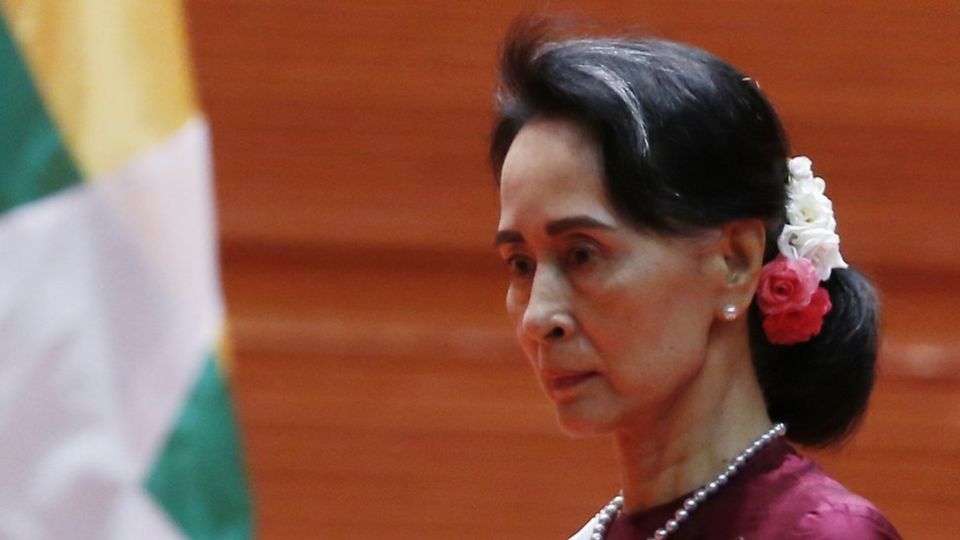
Myanmar's de facto leader, Aung San Suu Kyi, has been speaking about the violence and refugee crisis in Rakhine State: image via EPA, 19 September 2017
Rohingya crisis: Are Suu Kyi's Rohingya claims correct?: Jonathan Head, BBC News, 19 September 2017
The BBC's South East Asia correspondent,
Jonathan Head, who has been covering the story of the Rohingya people
from both sides of the Myanmar-Bangladesh border, assesses her claims.

Aung San Suu Kyi: "There have been no conflicts since the 5 September and no clearance operations."
On 7 September, I was on a
government-organised media trip in the town of Alel Than Kyaw, where we
heard automatic weapons fire in the distance and saw four large columns
of smoke, indicating villages being burned.
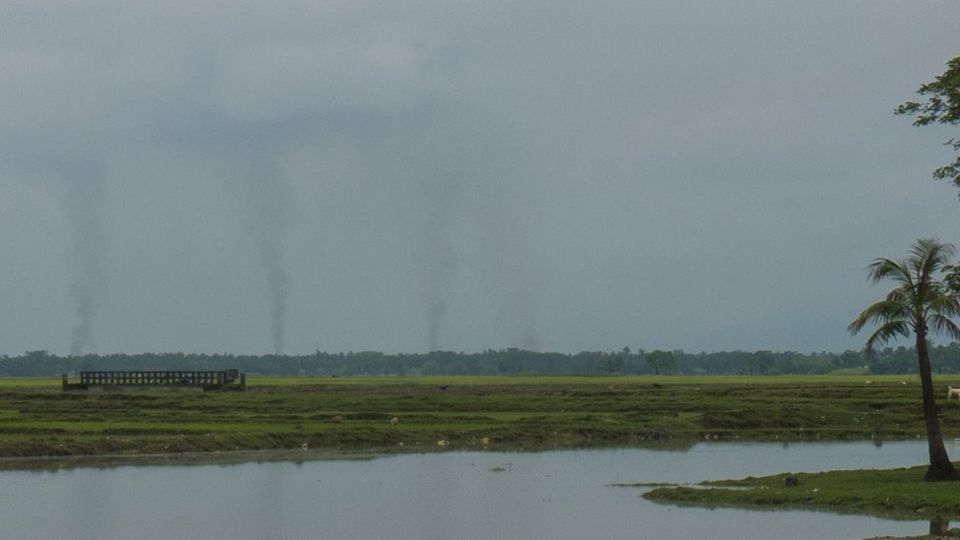
Four columns of smoke near Alel Than Kyaw on 7 September: image via Jonathan Head/BBC, 19 September 2017
Later that same day, we came across the Rohingya village of Gaw Du Thar Ya being set alight
by Rakhine Buddhist men, in front of armed policemen and close to a police barracks.
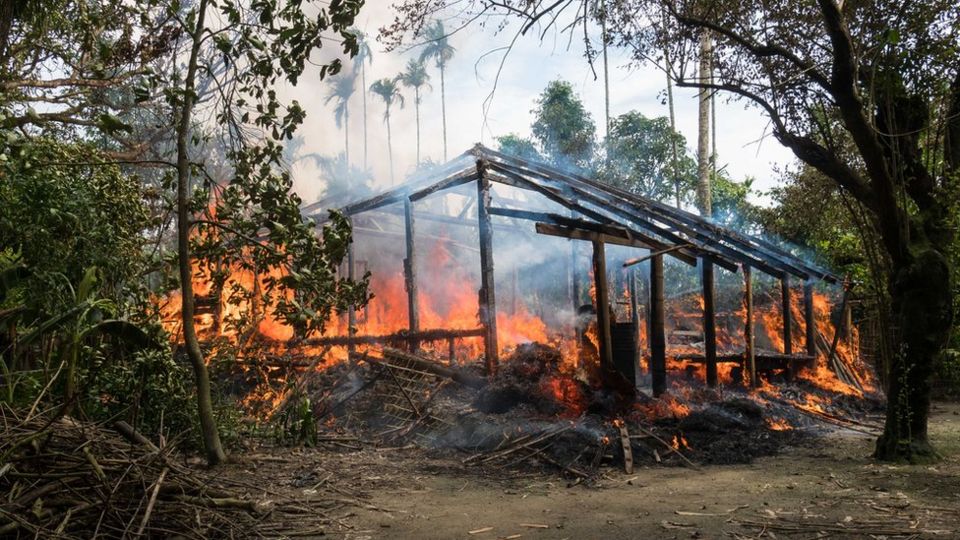

A Rohingya village burnt on 7 September: image via Jonathan Head/BBC, 19 September 2017
Now, from Bangladesh, we have seen columns of
smoke on the other side of the Naf River large enough to suggest
villages being burned.
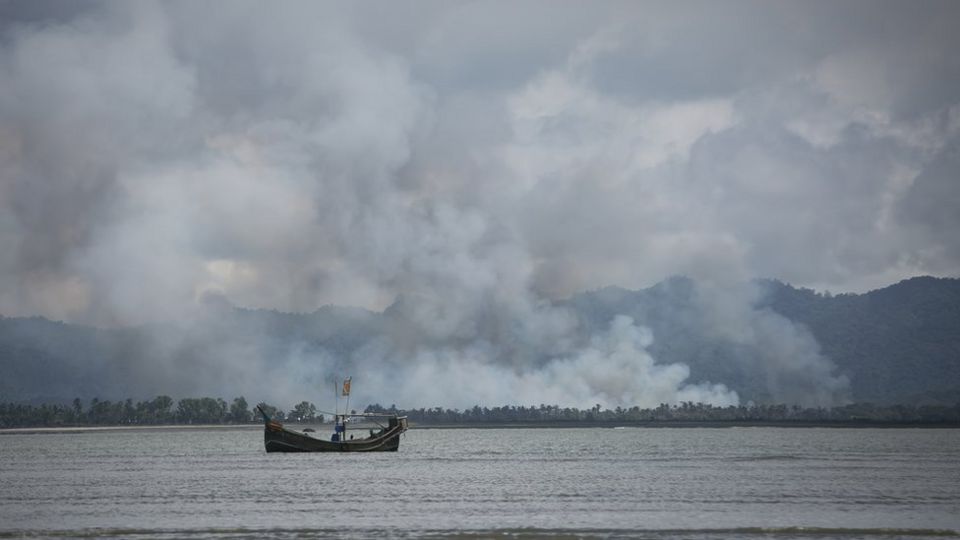
Smoke in Myanmar, seen from Bangladesh on 14 September: image by Getty via BBC, 19 September 2017
Aung San
Suu Kyi may not term these "clearance" operations, but given
the heavy military and police presence in these areas, close to the
riverbank, it is difficult to believe they do not have at least tacit
approval from the authorities there.

Aung San Suu Kyi: "Action will be
taken against all people's regardless of their religion, race or
political position who go against the laws of the land and who violate
human rights as accepted by our international community."
In more than 70 years of
recorded abuses by the Burmese armed forces, there are almost no records
of military officers being disciplined in Rakhine State or in the many
other areas where armed conflicts continue inside the country.
It is hard to see that happening now,
with the military insisting all of the more than 400,000 Rohingyas who
have fled did so because of their involvement in the attacks by the
militant group known as the Arakan Rohingya Salvation Army.
One colonel in Maungdaw told me the many
allegations of rape made by Rohingya refugees could not be true because
his men were too busy fighting to rape and would find the Rohingya women
too unattractive.

Aung San Suu Kyi: "All people living
in the Rakhine State have access to education and health care services
without discrimination."
This is patently untrue.
Rohingyas have been subjected to discriminatory restrictions for many
years barring them from moving, even getting married, without official
permission, which often involves paying bribes.
Since the 2012 communal violence, Rohingyas have had even tighter restrictions imposed on them.
Many in the displacement camps within
Myanmar are confined to those areas unless they have special permission
to leave, which is hard to get.
I know students inside the camps whose education has been halted for the past five years.
Four years ago, I visited the Rohingya
village of Ah Nauk Pyin, south of Rathedaung, where the inhabitants were
unable to leave even for medical treatment because of the hostility of
the surrounding Rakhine Buddhist communities.
On Monday, in Bangladesh, I met Abdulmajid, from Gaw Du Thar Ya - the village I saw being burnt.
He told me for "the last five years, we couldn't go outside our village for work".
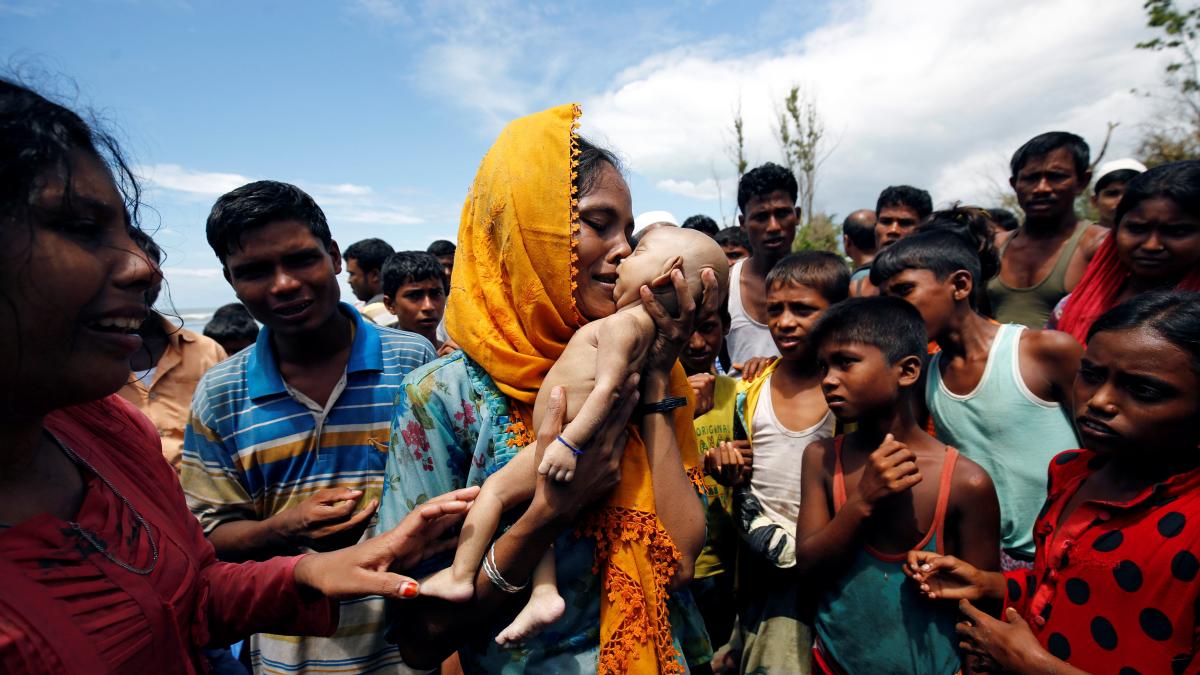
A
#Rohingya with the body of her four-day-old son who drowned on the
crossing to #Bangladesh. #AungSanSuuKyi stop butchering the innocent.: image via Javed Kayani @Javed_Kayani, 15 September 2017

Can
anyone help #AungSanSuuKyi solve this mystery? Why would anyone flee
mass killings, gang rapes and the torching of their villages: image via George Monbiot @GeorgeMonbiot,19 September 2017
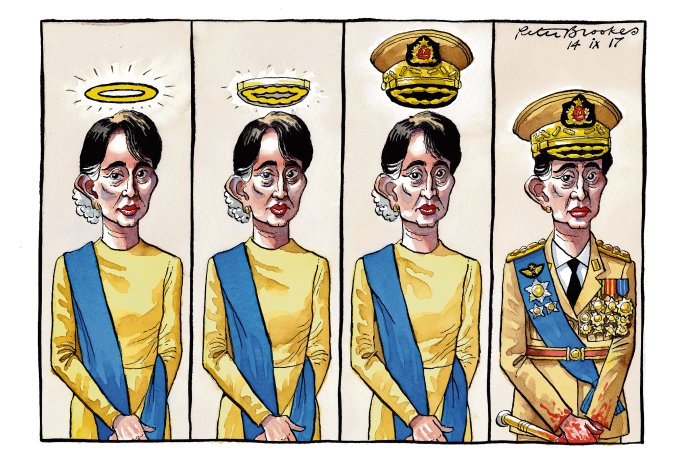
My cartoon Thursday @TheTimes on Burma..... #AungSanSuuKyi's fall from grace. #EthnicCleansing #RohingyaMuslims: image via Peter Brookes @BrookesTimes, 14 September 2017
It's an Exodus
In the 24 days since 25 Aug 420k
Edward Rees Retweeted Edward Rees
Edward Rees added, That is 729 #Rohingya refugees entering #Bangladesh every hour 24/7 for 24 days. It's an Exodus. #myanmar
image via Edward Rees @ReesEdward, 19 September 2017:
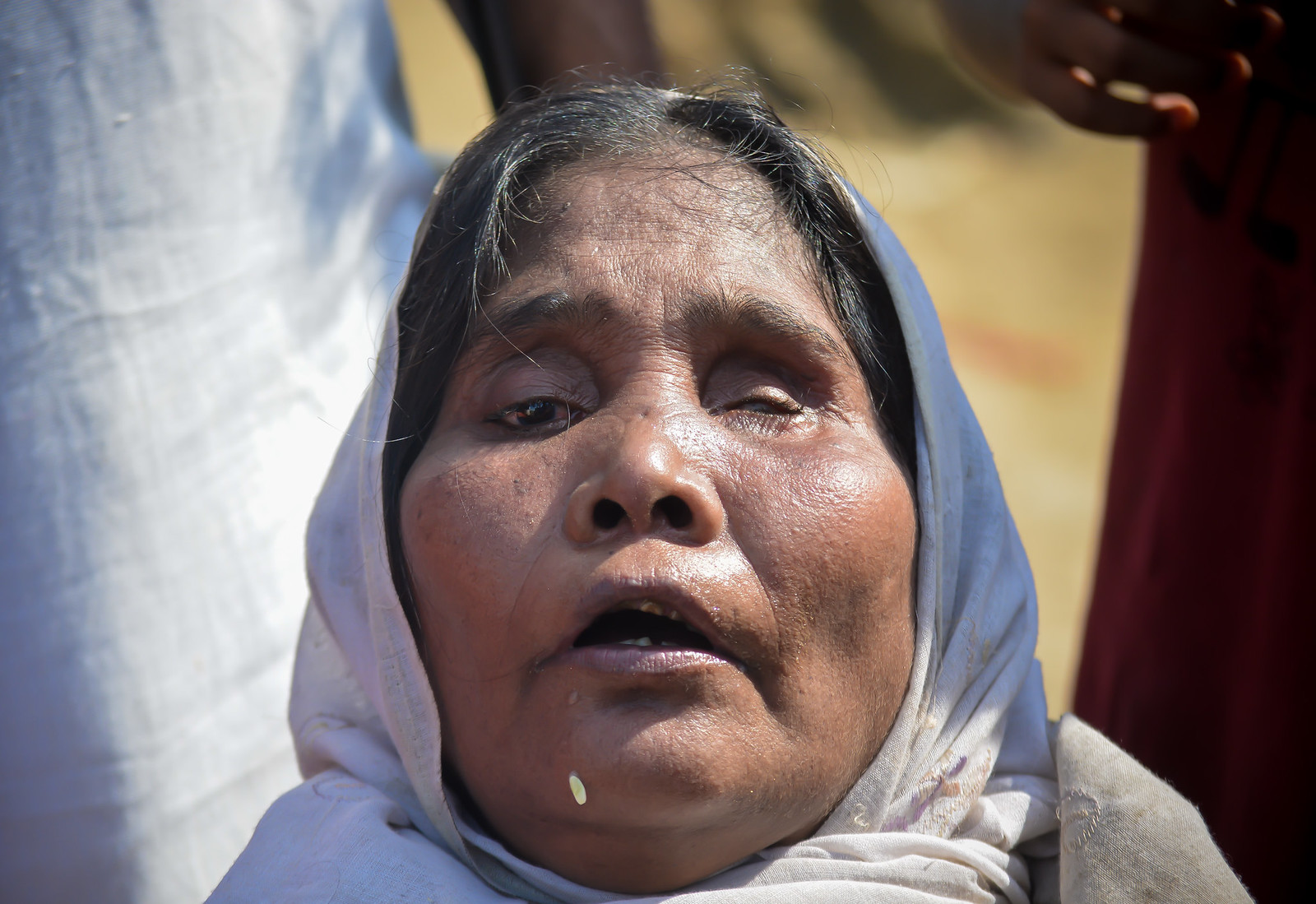
Disabled Vision. An elderly Rohingya woman with lost eyesight tries to talk to the journalists standing in front of her to explain what had happened to her family members and herself back in Rakhine State of Myanmar. Thousands of women from different age groups and physical inabilities have fled Myanmar and taken shelter at Teknaf and Ukhia upazilla in Cox's Bazaar district of Bangladesh as Myanmar army has unleashed an ethnic cleansing operation against the Rohingya Muslim minority of Rakhine State, Myanmar.: photo by Muhammad A. Bashed, 15 September 2017

Disabled Vision. An elderly Rohingya woman with lost eyesight tries to talk to
the journalists standing in front of her to explain what had happened
to her family members and herself back in Rakhine State of Myanmar.
Thousands of women from different age groups and physical inabilities
have fled Myanmar and taken shelter at Teknaf and Ukhia upazilla in
Cox's Bazaar district of Bangladesh as Myanmar army has unleashed an
ethnic cleansing operation against the Rohingya Muslim minority of
Rakhine State, Myanmar.: photo by Muhammad A. Bashed, 15 September 2017

Disabled Vision. An elderly Rohingya woman with lost eyesight tries to talk to the journalists standing in front of her to explain what had happened to her family members and herself back in Rakhine State of Myanmar. Thousands of women from different age groups and physical inabilities have fled Myanmar and taken shelter at Teknaf and Ukhia upazilla in Cox's Bazaar district of Bangladesh as Myanmar army has unleashed an ethnic cleansing operation against the Rohingya Muslim minority of Rakhine State, Myanmar.: photo by Muhammad A. Bashed, 15 September 2017

00048318. A boy from the Rohingya community stands outside a shack in a camp in Delhi, August 17, 2017. (Photo by Cathal McNaughton/Reuters): image by Jean Bosco SIBOMANA, 19 September 2017

00048318. A boy from the Rohingya community stands outside a shack in a camp in Delhi, August 17, 2017. (Photo by Cathal McNaughton/Reuters): image by Jean Bosco SIBOMANA, 19 September 2017

00048318. A boy from the Rohingya community stands outside a shack in a camp in Delhi, August 17, 2017. (Photo by Cathal McNaughton/Reuters): image by Jean Bosco SIBOMANA, 19 September 2017
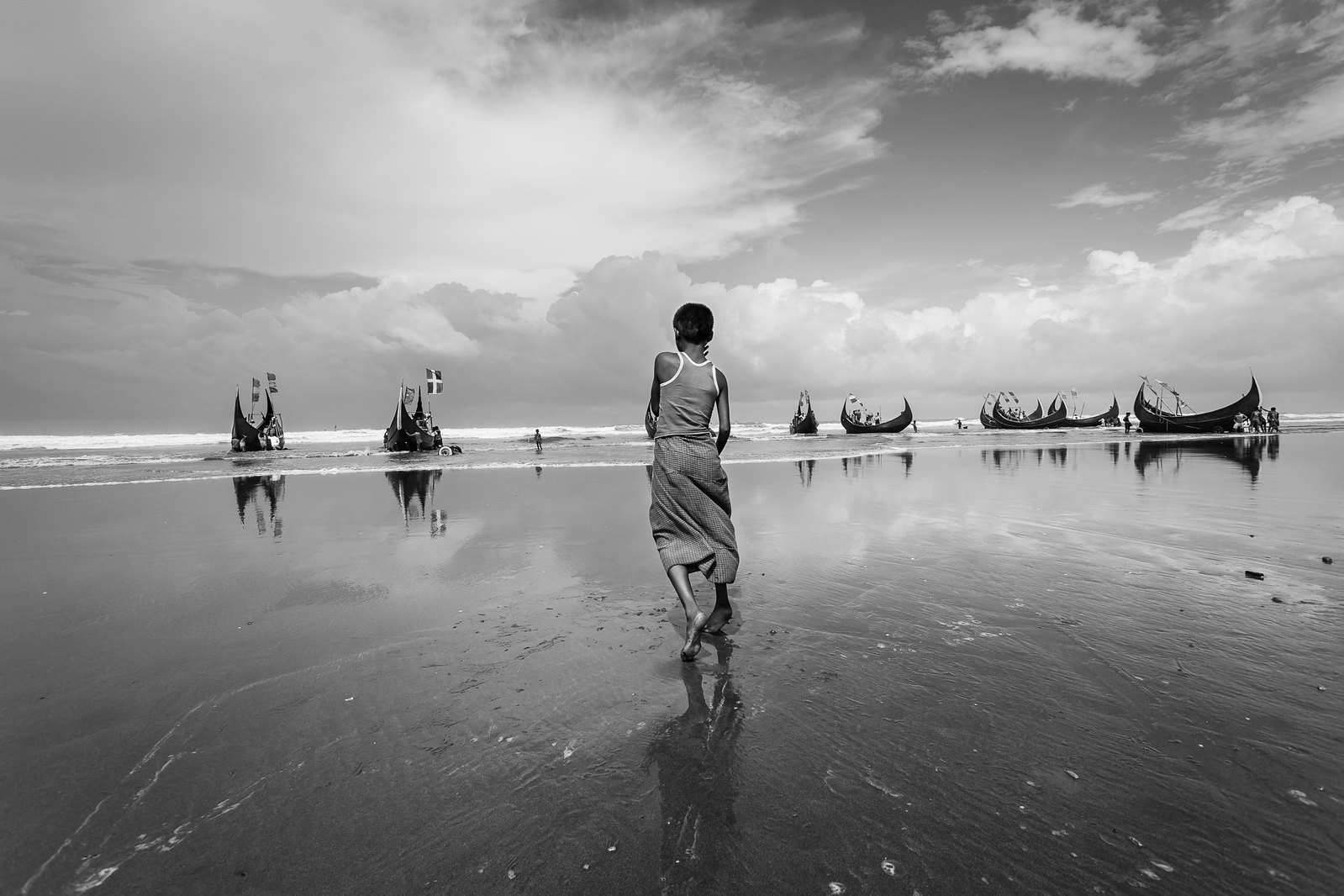
Rohingya. Shamplapur, Bangladesh. More than 10 million people worldwide have no nationality and most are stateless by no fault of their own. Not having a nationality usually occurs because of discrimination against certain groups.Over a million Rohingya live in Myanmar (Burma) where they are stateless in their own country. The Rohingya are a Muslim minority, living mainly in the Northwestern Sate of Rakhine, Myanmar (Burma). They have been discriminated against, persecuted and deprived of citizenship since the end of the seventies by the Burmese authorities and are not even recognized as a minority. As a result, Rohingya have been segregated and excluded from civil society in places they have lived for several generations. Without citizenship or documents, Rohingya belong to no country and are deprived of civil, social and human rights. They will usually be denied access to the legal labour market, to basic health care services and, most of all, to proper education. In Myanmar they have been relocated in internment camps for internally displaced persons, not allowed to leave without permission and police escort. More than half a million Rohingya have fled to Bangladesh during the past decades, to makeshift camps and registered refugee camps. Prospects for education, employment, basic human rights, such as housing and access to medical facilities, and hope for dignified life are practically inexistent and impossible for the stateless. Thousands have fallen victim of human smugglers on their way for a better life in Malaysia or India, ending up in prison camps and held for ransom or in situations of bonded labour. The proportion of families that have been resettled in Europe or the US where they can start a new life is extremely low compared to the scope of this forgotten tragedy. Having usually no other document than a registration card, Rohingya are usually not allowed to travel within their own or host country without the risk of being arrested and jailed. Being stateless keeps them in a poverty limbo on the extreme margins of society. This is a story of the stateless and forgotten Rohingya Rohingya working as low paid daily labour for Bangladeshi fishing boat owners. The same boats have been used to smuggle desperate refugees towards international waters where bigger boats wait to transport them towards Thailand and Malaysia.: image by Organ Vida Archive, 7 June 2015

Rohingya. Shamplapur, Bangladesh. More than 10 million people worldwide have no nationality and most are stateless by no fault of their own. Not having a nationality usually occurs because of discrimination against certain groups.Over a million Rohingya live in Myanmar (Burma) where they are stateless in their own country. The Rohingya are a Muslim minority, living mainly in the Northwestern Sate of Rakhine, Myanmar (Burma). They have been discriminated against, persecuted and deprived of citizenship since the end of the seventies by the Burmese authorities and are not even recognized as a minority. As a result, Rohingya have been segregated and excluded from civil society in places they have lived for several generations. Without citizenship or documents, Rohingya belong to no country and are deprived of civil, social and human rights. They will usually be denied access to the legal labour market, to basic health care services and, most of all, to proper education. In Myanmar they have been relocated in internment camps for internally displaced persons, not allowed to leave without permission and police escort. More than half a million Rohingya have fled to Bangladesh during the past decades, to makeshift camps and registered refugee camps. Prospects for education, employment, basic human rights, such as housing and access to medical facilities, and hope for dignified life are practically inexistent and impossible for the stateless. Thousands have fallen victim of human smugglers on their way for a better life in Malaysia or India, ending up in prison camps and held for ransom or in situations of bonded labour. The proportion of families that have been resettled in Europe or the US where they can start a new life is extremely low compared to the scope of this forgotten tragedy. Having usually no other document than a registration card, Rohingya are usually not allowed to travel within their own or host country without the risk of being arrested and jailed. Being stateless keeps them in a poverty limbo on the extreme margins of society. This is a story of the stateless and forgotten Rohingya Rohingya working as low paid daily labour for Bangladeshi fishing boat owners. The same boats have been used to smuggle desperate refugees towards international waters where bigger boats wait to transport them towards Thailand and Malaysia.: image by Organ Vida Archive, 7 June 2015

Rohingya. Shamplapur, Bangladesh. More than 10 million people worldwide have no nationality and most are stateless by no fault of their own. Not having a nationality usually occurs because of discrimination against certain groups.Over a million Rohingya live in Myanmar (Burma) where they are stateless in their own country. The Rohingya are a Muslim minority, living mainly in the Northwestern Sate of Rakhine, Myanmar (Burma). They have been discriminated against, persecuted and deprived of citizenship since the end of the seventies by the Burmese authorities and are not even recognized as a minority. As a result, Rohingya have been segregated and excluded from civil society in places they have lived for several generations. Without citizenship or documents, Rohingya belong to no country and are deprived of civil, social and human rights. They will usually be denied access to the legal labour market, to basic health care services and, most of all, to proper education. In Myanmar they have been relocated in internment camps for internally displaced persons, not allowed to leave without permission and police escort. More than half a million Rohingya have fled to Bangladesh during the past decades, to makeshift camps and registered refugee camps. Prospects for education, employment, basic human rights, such as housing and access to medical facilities, and hope for dignified life are practically inexistent and impossible for the stateless. Thousands have fallen victim of human smugglers on their way for a better life in Malaysia or India, ending up in prison camps and held for ransom or in situations of bonded labour. The proportion of families that have been resettled in Europe or the US where they can start a new life is extremely low compared to the scope of this forgotten tragedy. Having usually no other document than a registration card, Rohingya are usually not allowed to travel within their own or host country without the risk of being arrested and jailed. Being stateless keeps them in a poverty limbo on the extreme margins of society. This is a story of the stateless and forgotten Rohingya Rohingya working as low paid daily labour for Bangladeshi fishing boat owners. The same boats have been used to smuggle desperate refugees towards international waters where bigger boats wait to transport them towards Thailand and Malaysia.: image by Organ Vida Archive, 7 June 2015
Mania
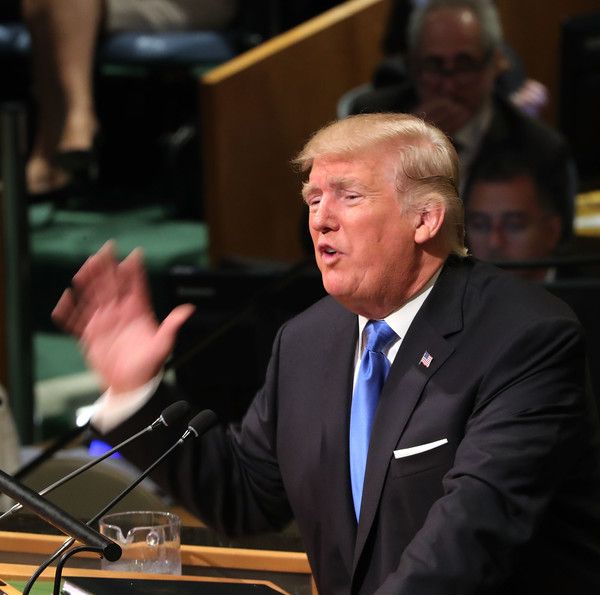
Spencer's shots of #Trump's hand were inspired. That speech, the stuff of mania. #UN #GeneralAssembly @spencerplatt1 @GettyImages: image via Reading The Pictures @ReadingThePix, 19 September 2017
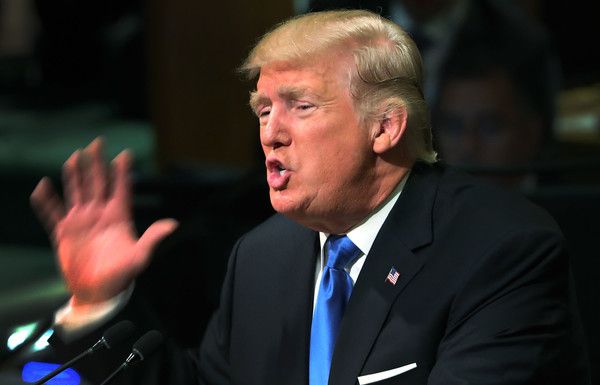
Spencer's shots of #Trump's hand were inspired. That speech, the stuff of mania. #UN #GeneralAssembly @spencerplatt1 @GettyImages: image via Reading The Pictures @ReadingThePix, 19 September 2017
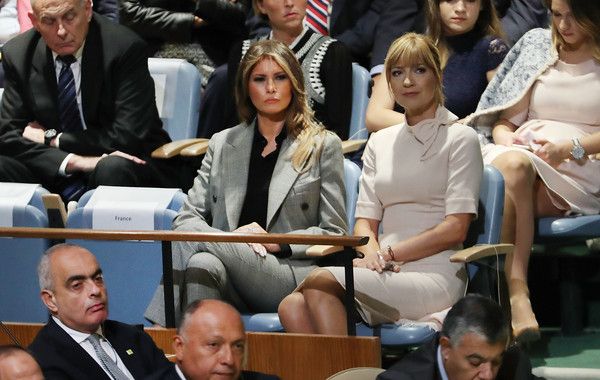
The most reliable look from Kelly, the minder/babysitter, is tedium. #Trump #UN #GeneralAssembly @spencerplatt1 @GettyImages: image via Reading The Pictures @ReadingThePix, 19 September 2017
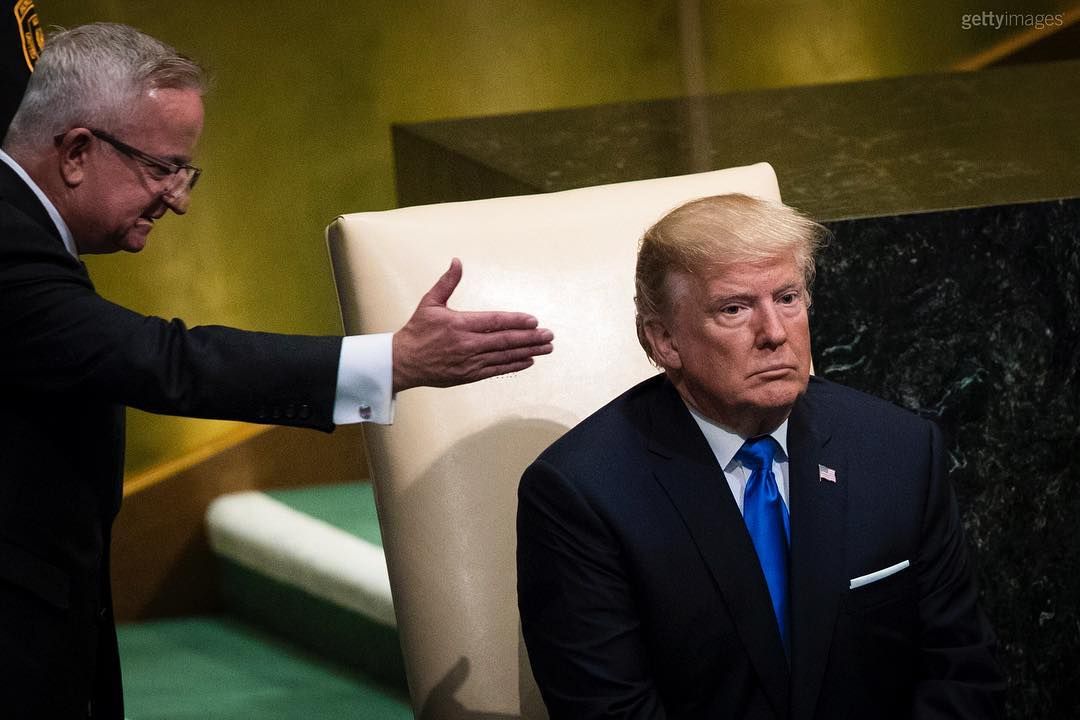
It's a worthy shot (and not a cheap one) because he's oblivious by nature. Photo @drewangerer @GettyImages #un #unga #UN #GeneralAssembly: image via Reading The Pictures @ReadingThePix, 19 September 2017
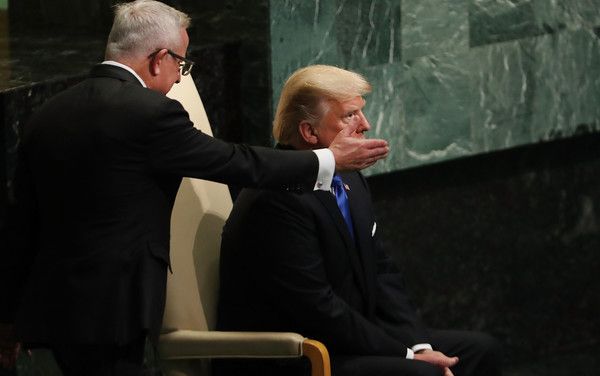
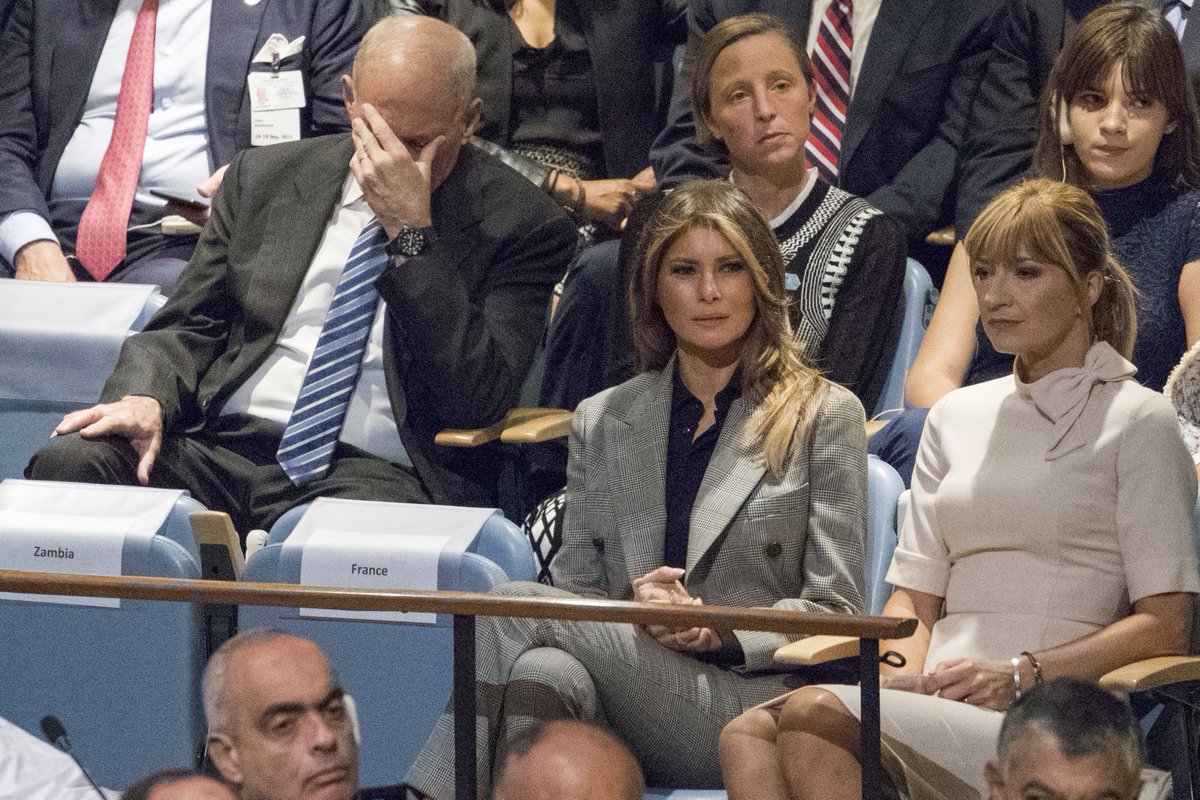
Replying to @BuzzFeedNews
White House Chief of Staff John Kelly and Melania Trump listening to Trump's first speech at the UN. (Photo: AP)
Reading The Pictures Retweeted BuzzFeed News
Reading The Pictures added,
Doubt #Kelly was cringing. But as Trump's minder, your face is a lightning rod. #UN #GeneralAssembly
image
via Reading The Pictures @ReadingThePix, 19 September 2017

As much resolution as we could handle of Trump and lawnmower boy.: image
via Reading The Pictures @ReadingThePix, 19 September 2017: image
via Reading The Pictures @ReadingThePix, 19 September 2017

Horse of a different color? Photo @drewangerer @GettyImages #un #unga #UN #GeneralAssembly: image via Reading The Pictures @ReadingThePix, 19 September 2017

This is an honest to god @washingtonpost headline and illo. We really are in trouble. #trump #media #northkorea: image via Reading The Pictures @ReadingThePix, 19 September 2017
Clear
trend now: small regressive demos spawning larger counter ones.
Ghosting understandable. #LGBTQ #gaymarriage #Berlin @GettyImages: image via Reading The Pictures @ReadngThePix, 19 September 2017

We have your #HandmaidsTale Emmy Prep right here. Emmy mini-episode 1: Best Actress: image via HandmaidsPodcast @HandmaidPodcast, 16 September 2017

#Emmys: How #HandmaidsTale became the most unintentionally relevant show ever: image via Hollywood Reporters @THR, 17 September 2017
#ElisabethMoss on the red carpet. She's absolutely stunning! #Emmys #HandmaidsTale #Emmy: image via Elisabeth Moss Fan @ElisabethMossFr, 17 September 2017

#ElisabethMoss on the red carpet. She's absolutely stunning! #Emmys #HandmaidsTale #Emmy: image via Elisabeth Moss Fan @ElisabethMossFr, 17 September 2017
#Emmys #HandmaidsTale scored a relative sweep, winning best drama, lead + supporting actress, writing, directing: image via Hollywood Reporters @THR, 18 September 2017
Elisabeth Moss wins her first #Emmy! More on her journey through the making of #HandmaidsTale, in THR's cover: image via Hollywood Reporter @THR, 17 September 2017

Here's Tuesday's #Marijuana cartoon in @TorontoStar #HandmaidsTale #onpoli: image via Theo Moudakis @TheoMoudakis, 18 September 2017
@HandmaidsOnHulu wins Outstanding Drama Series. #Emmys: image via CNN Entertainment @CNNent, 17 September 2017

Demonstrators participate in a “die-in” protest outside the St. Louis Police Department headquarters in response to a not guilty verdict in the trial of former St. Louis police officer Jason Stockley Sunday, Sept. 17, 2017, in St. Louis. Stockley was acquitted on Friday in the 2011 killing of a black man following a high-speed chase.: photo by Jeff Roberson/AP, 17 September 2017
The smashed business widows -- Are they the handmaids?
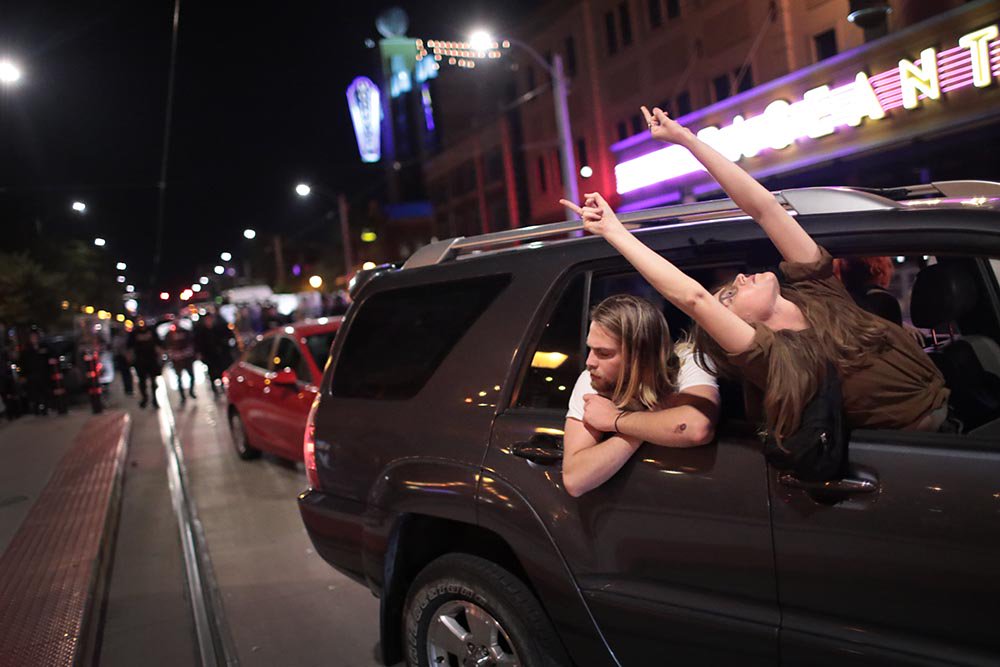
Dozens
of business widows were smashed at and at least 2 police cars damaged
during protests last night in #StLouis #gettyimagesnews: image via scott olson @olsongetty, 17 September 2017
The horror. The business widows were smashed and riding around throwing the double bird out of moving vehicles
at
nobody in particular. And who are the business widows you ask? And why
in the world are they doing this? Are they the handmaids?
Is this their tale? If not, why not? And if not now, when? Don't they understand they are contributing to the death of Earth
by
riding around in expensive gas guzzling boojietype vehicles emitting
carbon products crazily w/o compunction and giving the impression
the
so-called Resistance is nothing more than a loose aggregation of
inarticulate spoiled rich brats from the suburbs who want attention
and are just as happy to be widows in any case? But, like, wouldn't you? I mean, if you were, like, uh, a handmaid?
And what is a handmaid you ask? Is it the same thing as, like, a drear hag? A dummy? An annoying thing? And aren't there
getting to be almost enough annoying things to go around, without loading them all into SUVs and encouraging them
to express themselves? Right out here on the streets? Isn't this how they became business widows in the first place?
And where are all the dead businessman husbands anyway? What happened to them? What's the deal here? Does nobody care?

Dozens of business widows were smashed at and at least 2 police cars damaged during protests last night in #StLouis #gettyimagesnews: image via scott olson @olsongetty, 17 September 2017
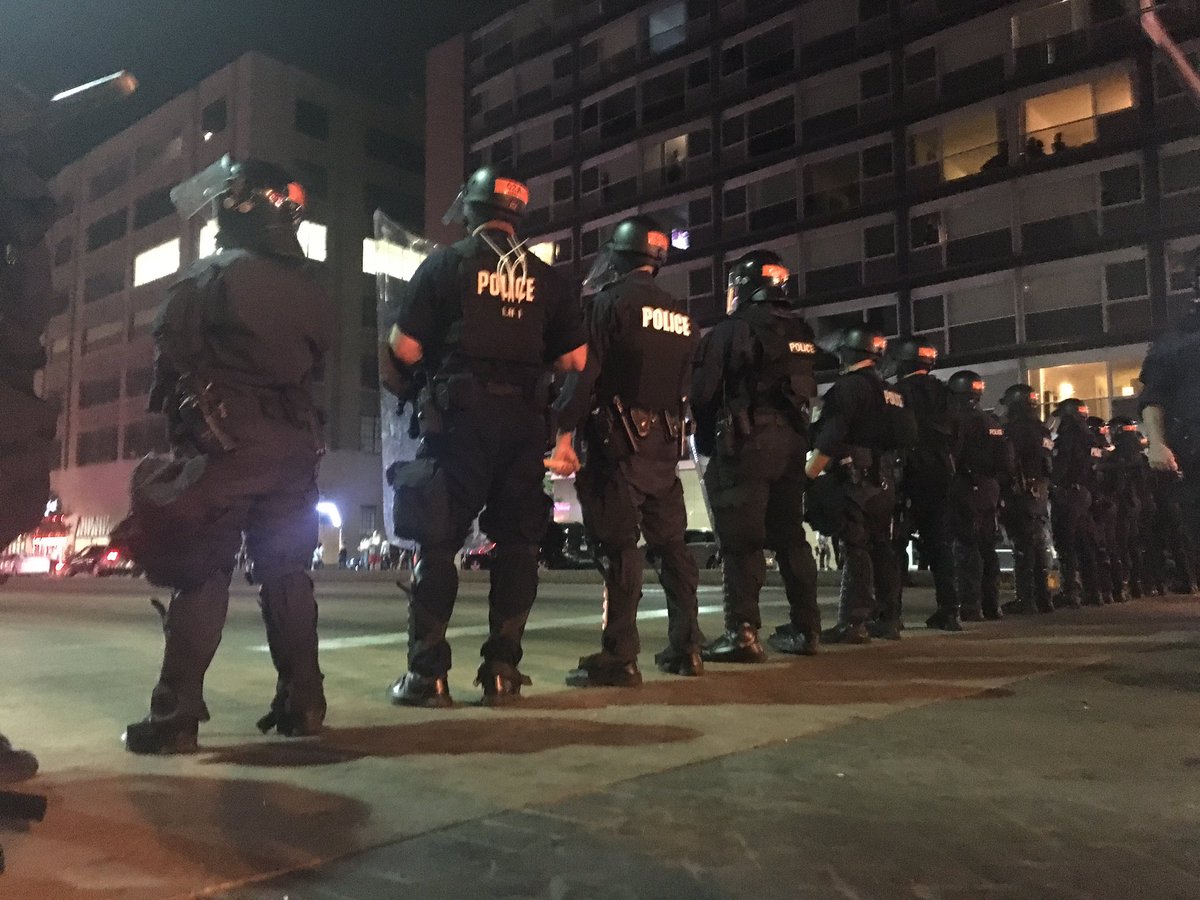
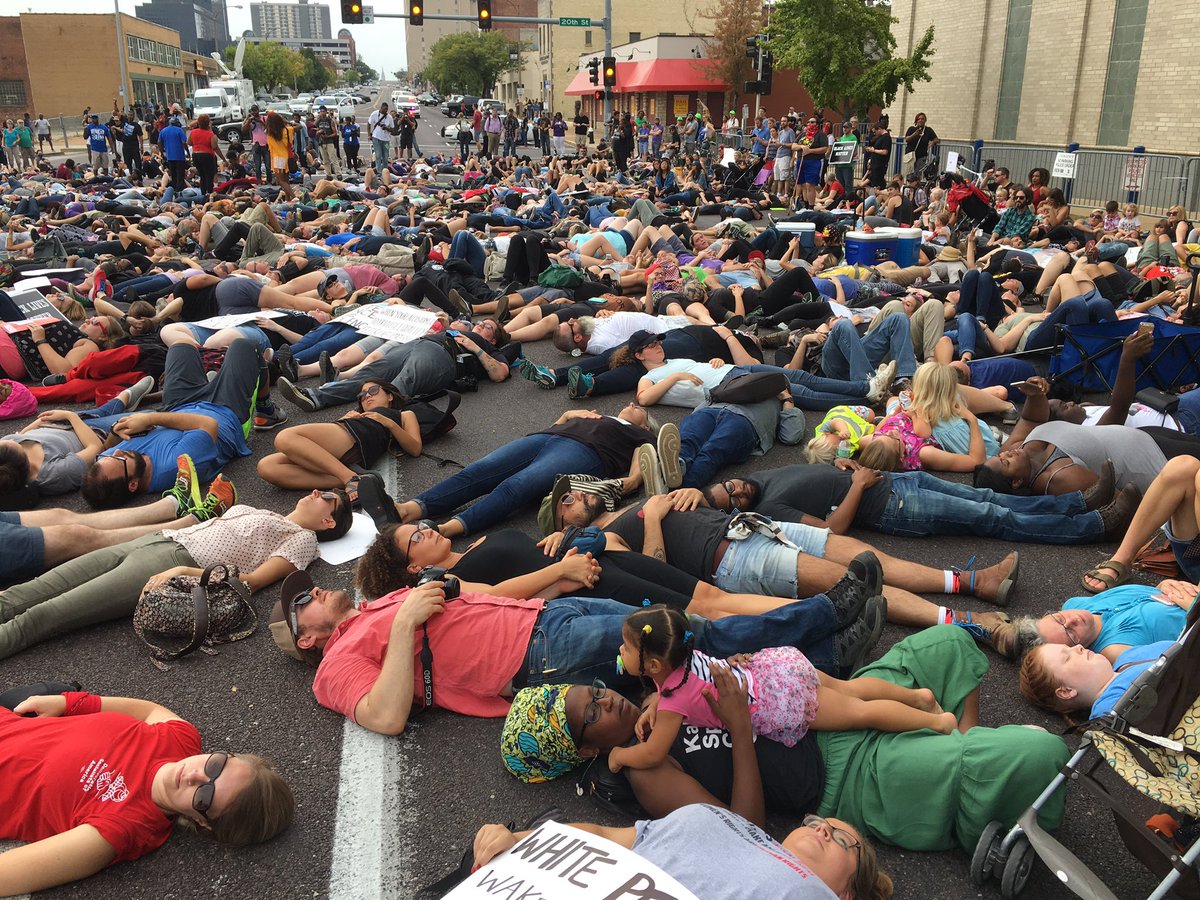
Demonstrators in #stlouis stage a die-in in front of police headquarters. #gettyimagesnews #Anthony LamarSmith: image via scott olson @scottolson, 17 September 2017

#StLouis protesters plan more action Sunday over white cop's acquittal after violence, smashed windows in suburbs.: image via AP Central U.S. @APCentralRegion, 17 September 2017
Russell Lee: Labor Day, Silverton, Colorado, 1940
Silverton, Colorado. Labor Day celebration. Burros loaded with ore sacks in the burro-loading contest
Silverton, Colorado. Labor Day celebrations. Contestant tying sacks of ore onto a burro in a contest
People in town for the Labor Day parade, Silverton, Colorado
Watching the Labor Day parade, Silverton, Colorado
Watching the Labor Day parade, Silverton, Colorado
Children watching the Labor Day parade, Silverton, Colorado
Cranking up motor which will supply power for the miners' drilling contest, Labor Day celebration, Silverton, Colorado
Miner attaching airhose to power drill he will use at the miners' power drilling contest at the Labor Day celebration, Silverton, Colorado
Miners in power drilling contest at the Labor Day celebration, Silverton, Colorado
Judges at the miners' drilling contest, Labor Day celebration, Silverton, Colorado
Candid cameraman at miners' contest at the Labor Day celebration, Silverton, Colorado
Boy watching miners' contest at the Labor Day celebration, Silverton, Colorado
Group of people watching events at the Labor Day celebration contests, Silverton, Colorado
Spectators at the miners' contest at the Labor Day celebration, Silverton, Colorado
Spectators at the contests for miners at the Labor Day celebration, Silverton, Colorado
Miner at the contests for miners at the Labor Day celebration, Silverton, Colorado
Photos
by Russell Lee for the Farm Security Administration, September 1940
(Farm Security Administration/Office of War Information Collection,
Library of Congress)
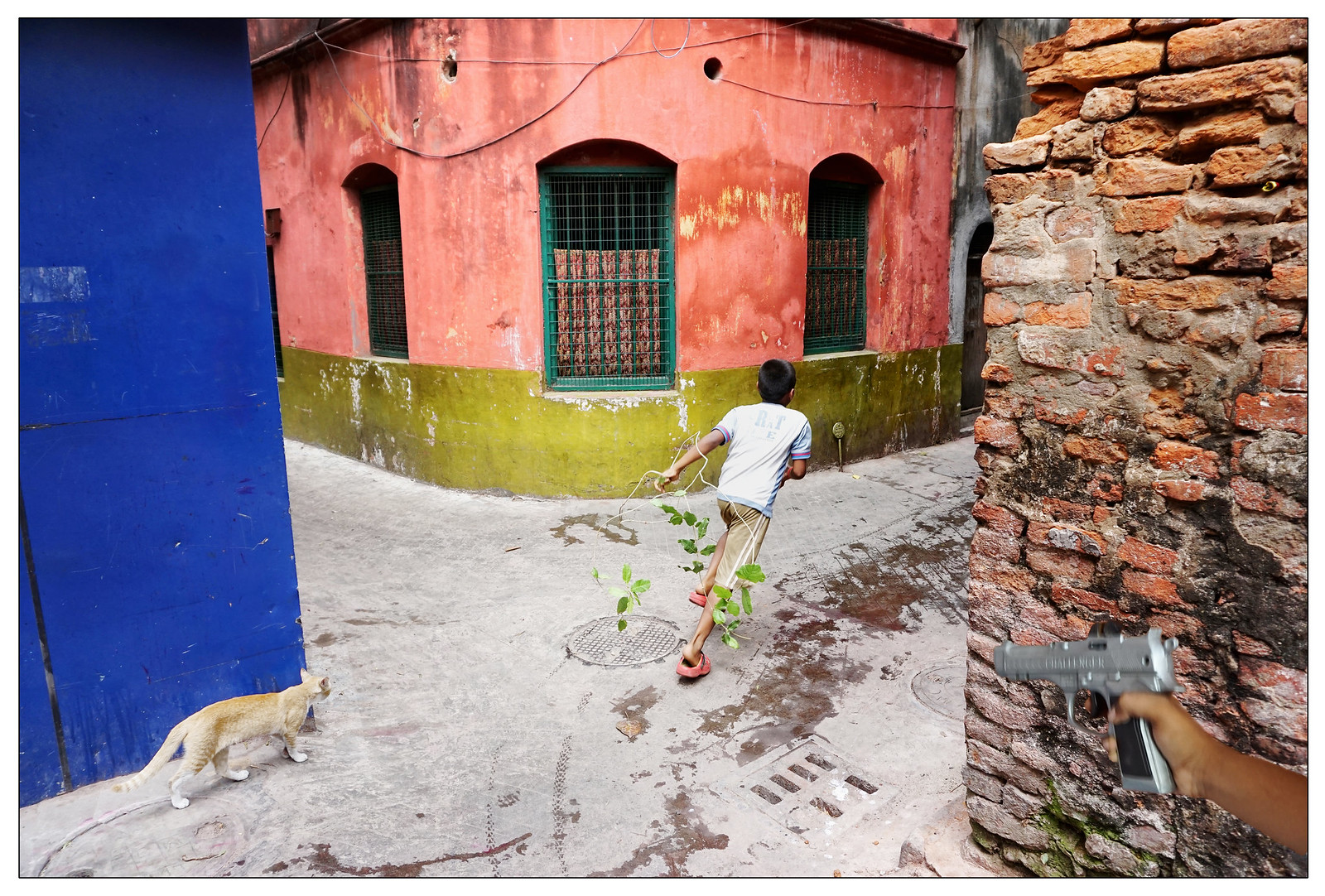
Wellington, Kolkata | 2017: photo by biswajit kumar, 3 September 2017

Wellington, Kolkata | 2017: photo by biswajit kumar, 3 September 2017

Wellington, Kolkata | 2017: photo by biswajit kumar, 3 September 2017

Poltava, Ukraine, 2017: photo by Steven Jensen, 8 February 2017
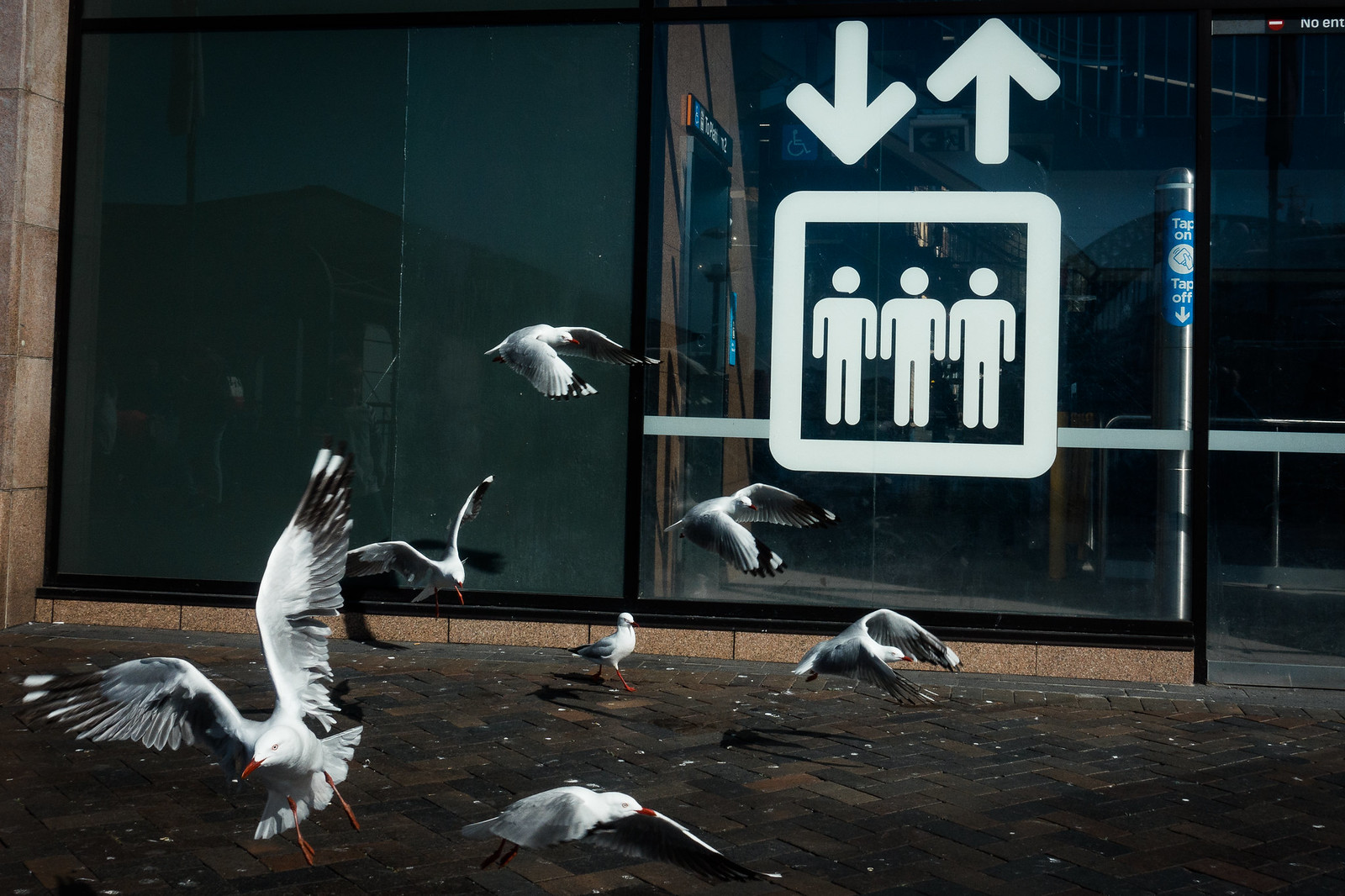
RC BIRD [Sydney]: photo by Thanakorn Treratanaboot, 30 August 2017

RC BIRD [Sydney]: photo by Thanakorn Treratanaboot, 30 August 2017

RC BIRD [Sydney]: photo by Thanakorn Treratanaboot, 30 August 2017
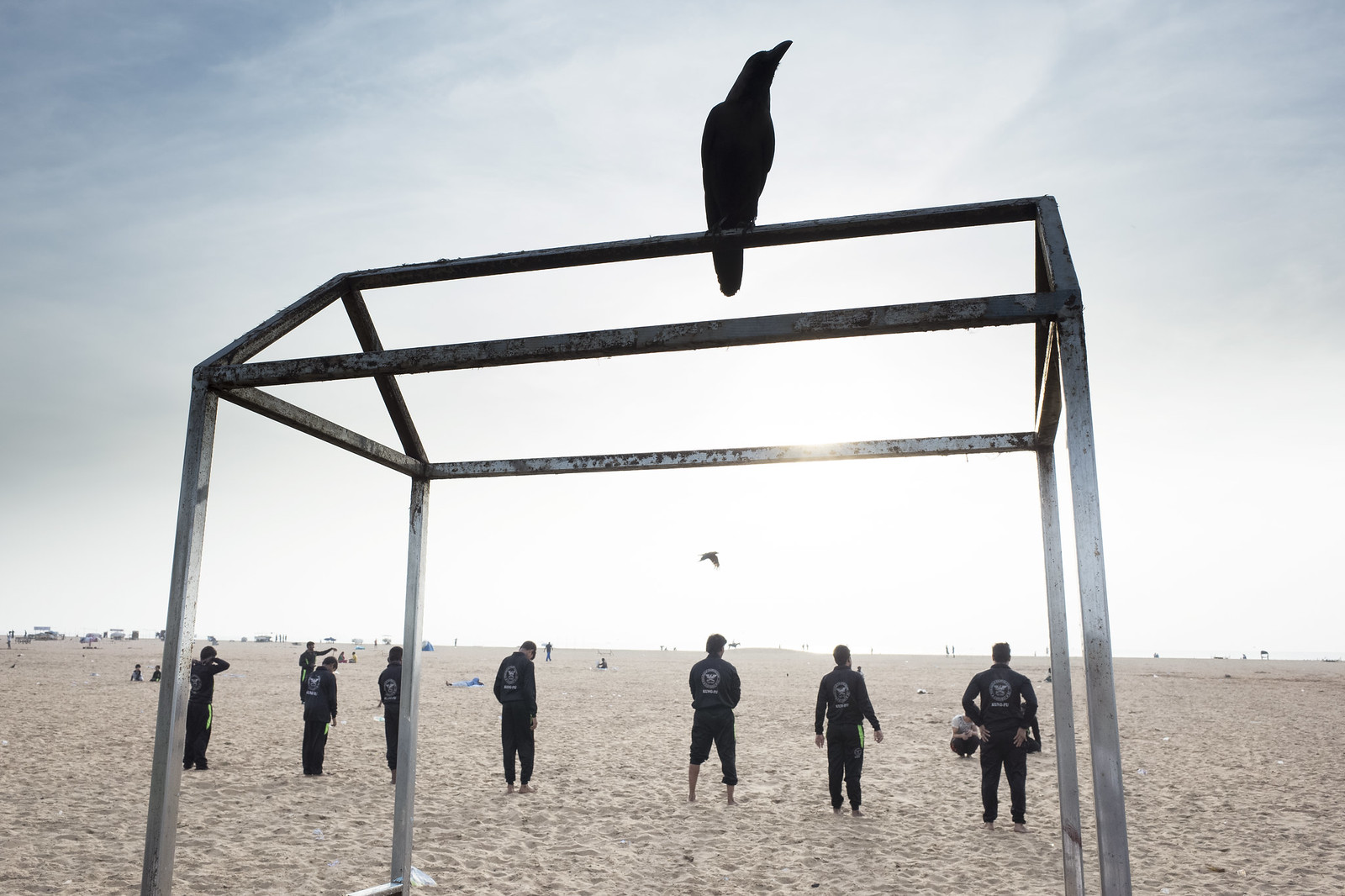
VM021559 [Chennai]: photo by Viduthalai Mani Dharmaraj, 2 September 2017

VM021559 [Chennai]: photo by Viduthalai Mani Dharmaraj, 2 September 2017

VM021559 [Chennai]: photo by Viduthalai Mani Dharmaraj, 2 September 2017

DSC00239-2 [Chumphon, Thailand]: photo by noppadol maitreechit, 18 March 2017

DSC00239-2 [Chumphon, Thailand]: photo by noppadol maitreechit, 18 March 2017

DSC00239-2 [Chumphon, Thailand]: photo by noppadol maitreechit, 18 March 2017
Omen

Wellington, Kolkata | 2017: photo by biswajit kumar, 3 September 2017

Wellington, Kolkata | 2017: photo by biswajit kumar, 3 September 2017

Wellington, Kolkata | 2017: photo by biswajit kumar, 3 September 2017

Poltava, Ukraine, 2017: photo by Steven Jensen, 8 February 2017

RC BIRD [Sydney]: photo by Thanakorn Treratanaboot, 30 August 2017

RC BIRD [Sydney]: photo by Thanakorn Treratanaboot, 30 August 2017

RC BIRD [Sydney]: photo by Thanakorn Treratanaboot, 30 August 2017

VM021559 [Chennai]: photo by Viduthalai Mani Dharmaraj, 2 September 2017

VM021559 [Chennai]: photo by Viduthalai Mani Dharmaraj, 2 September 2017

VM021559 [Chennai]: photo by Viduthalai Mani Dharmaraj, 2 September 2017

DSC00239-2 [Chumphon, Thailand]: photo by noppadol maitreechit, 18 March 2017

DSC00239-2 [Chumphon, Thailand]: photo by noppadol maitreechit, 18 March 2017

DSC00239-2 [Chumphon, Thailand]: photo by noppadol maitreechit, 18 March 2017

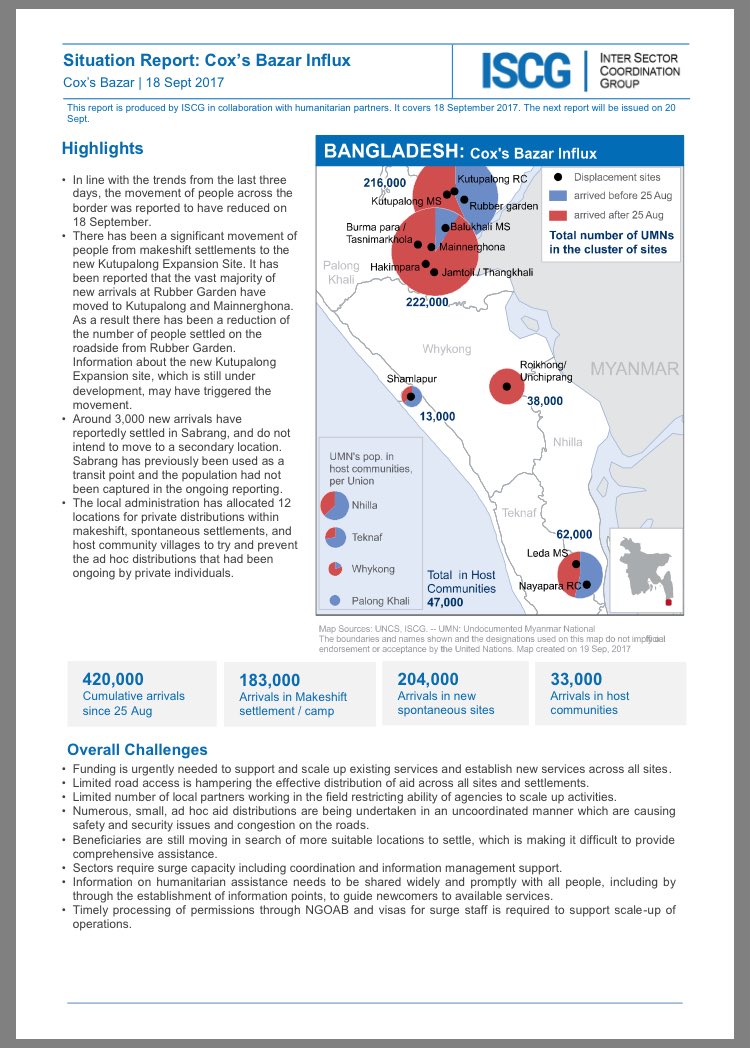









2 comments:
What Else Is New Dept.
Suckabug Goonsquad Censors Rohingya Squeak-Pipping, Protects Aristo-Pod Mindful Terror-a-ganza
Not that anybody gives a fig. Evidently Arseboke is enjoyed by many. Like, well... cars. You know?
A compendium of horror - too much to bear. How many storms of human greed and stupidity will the world endure?
Post a Comment